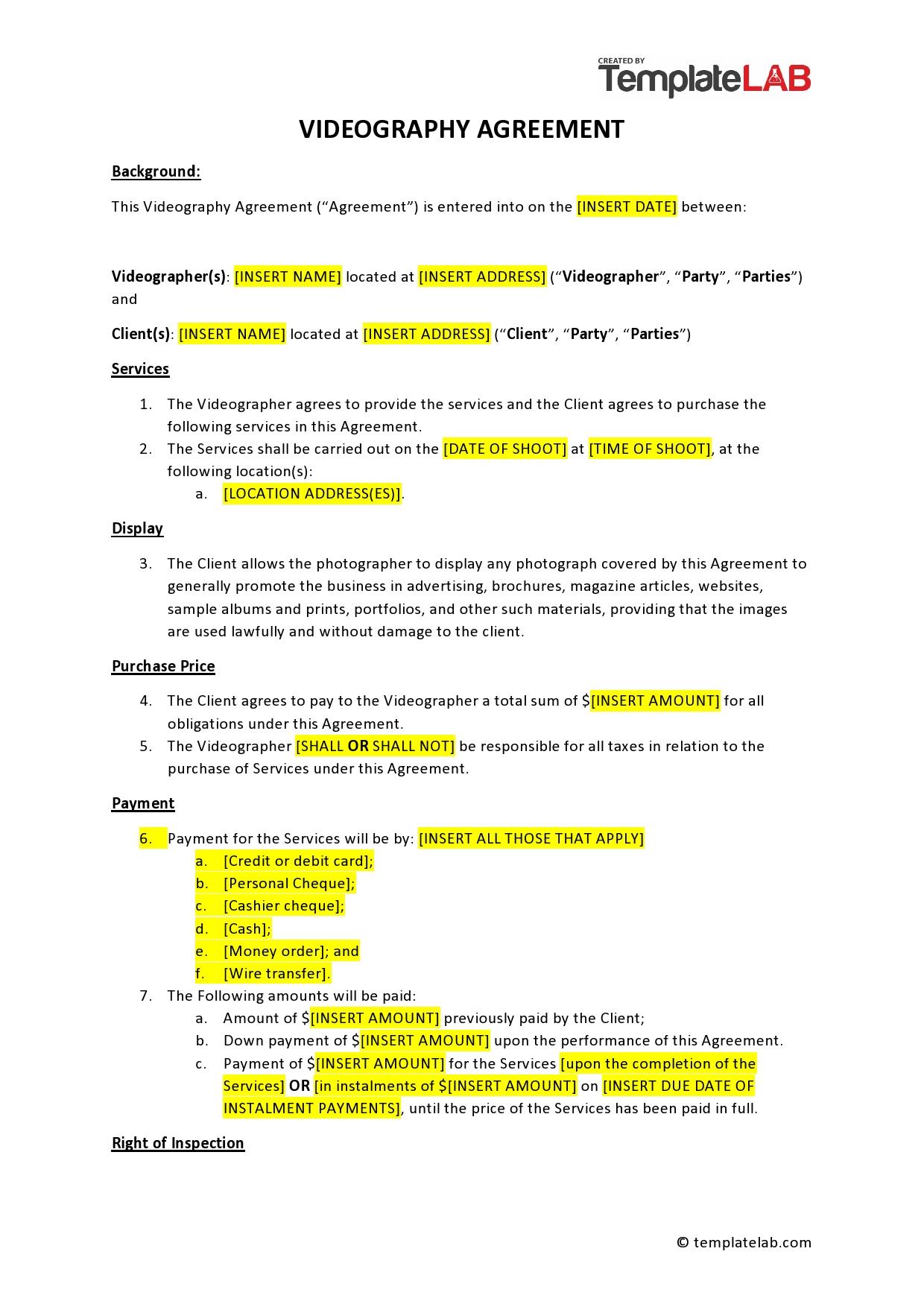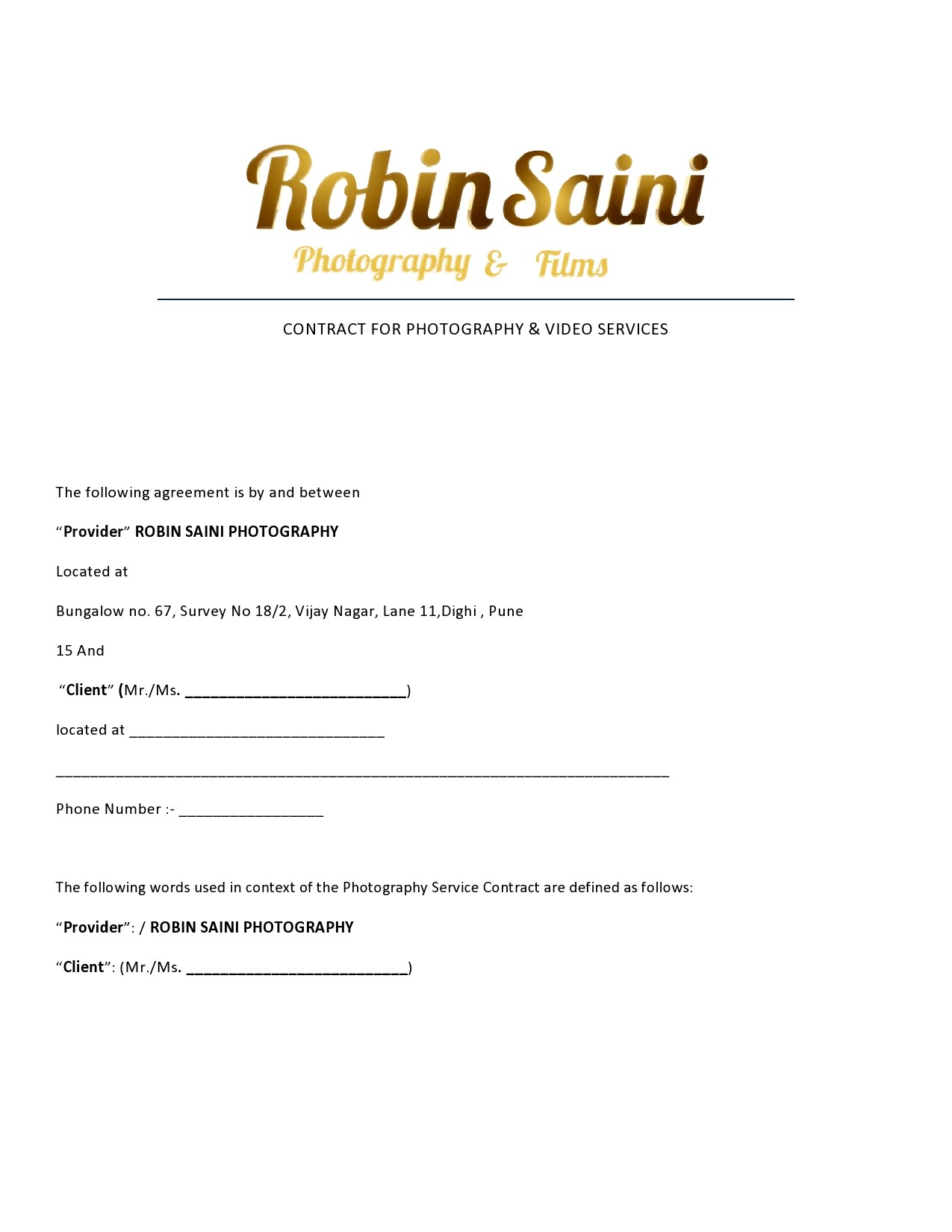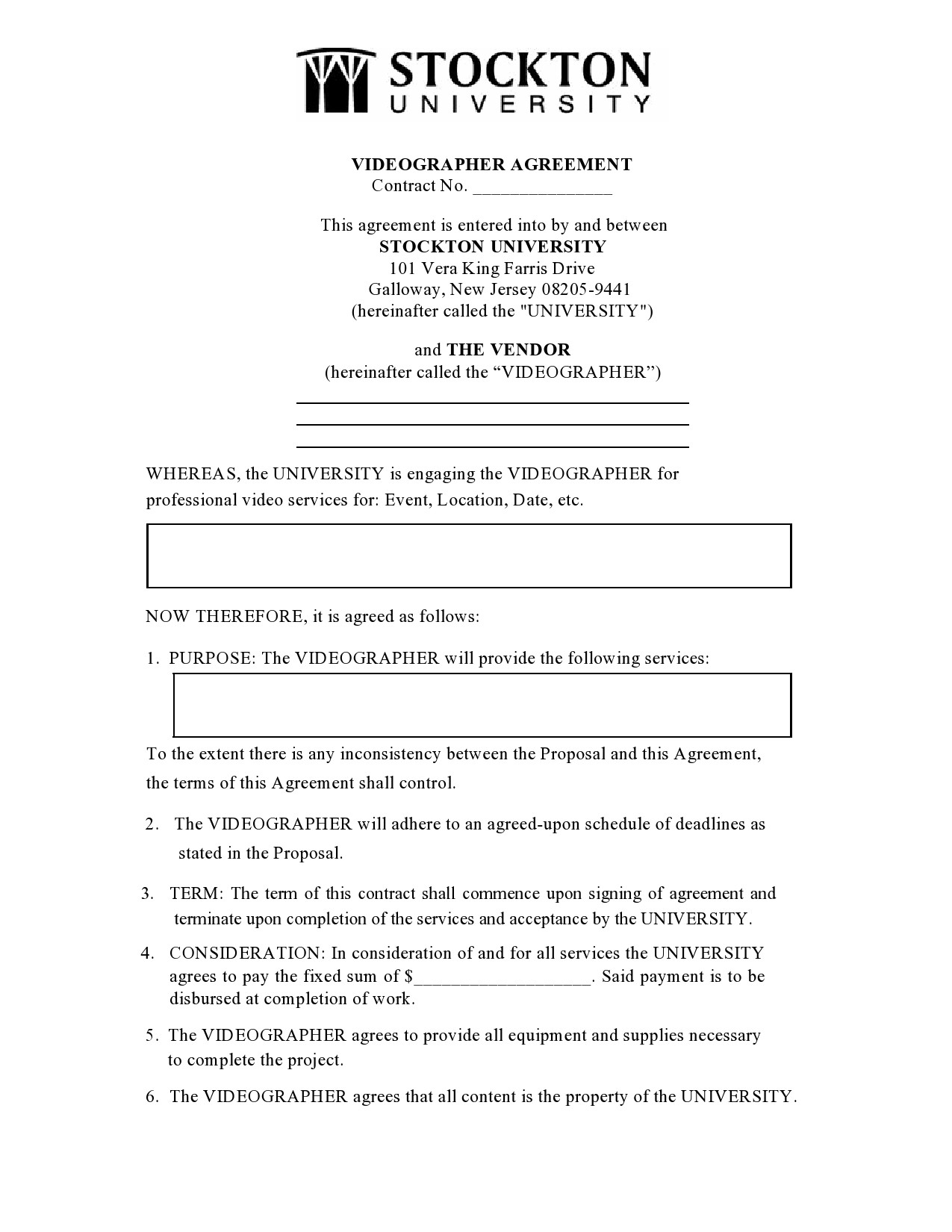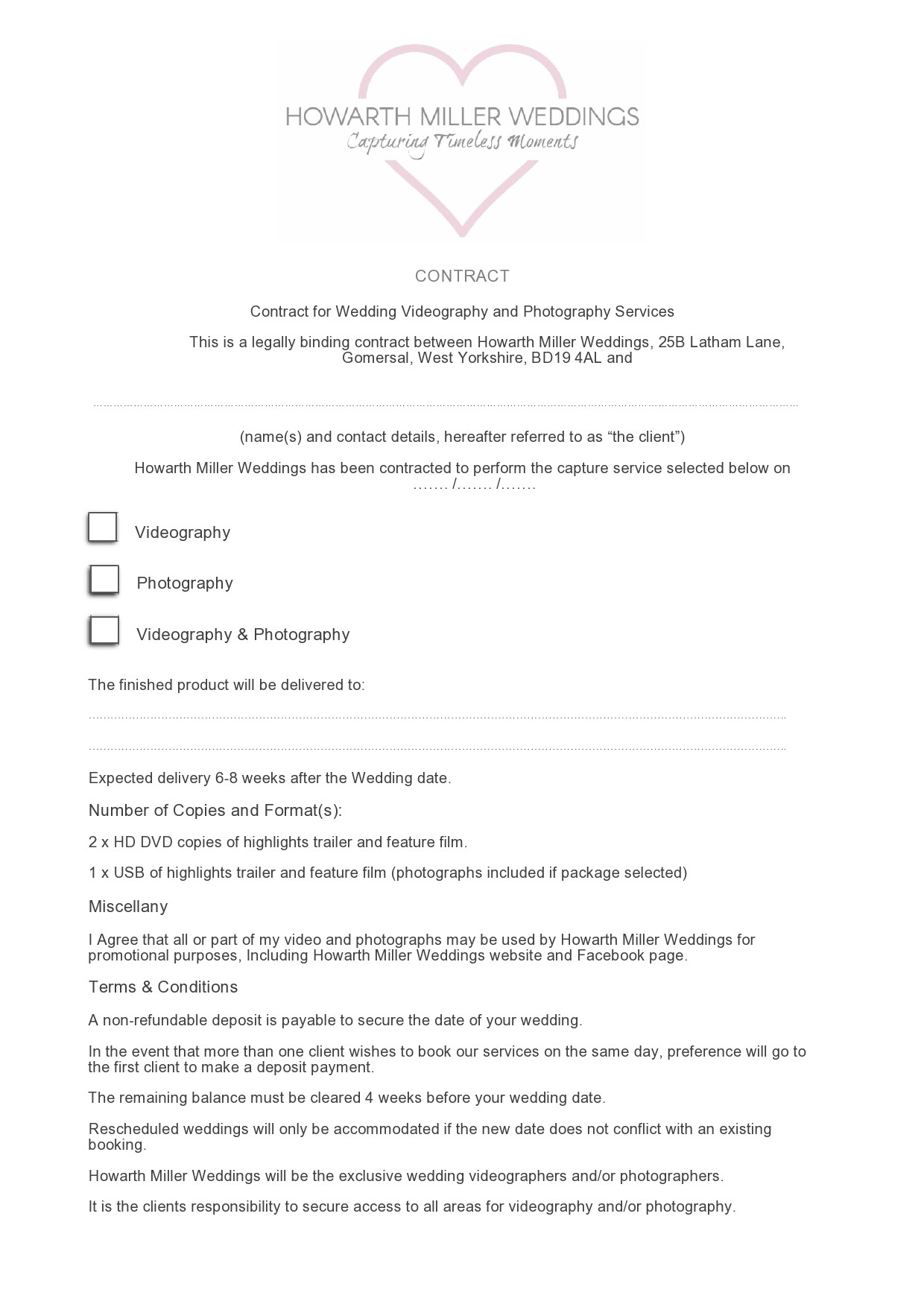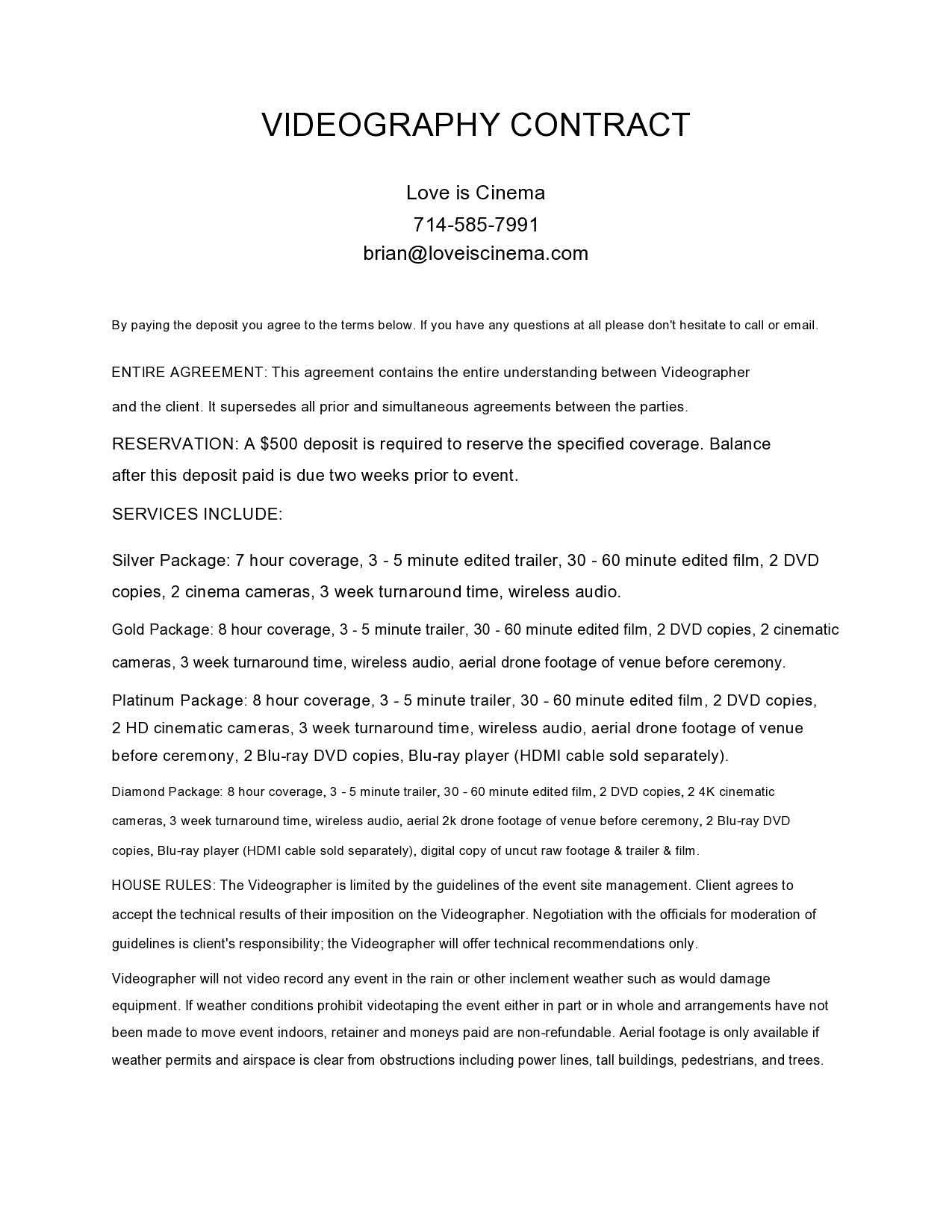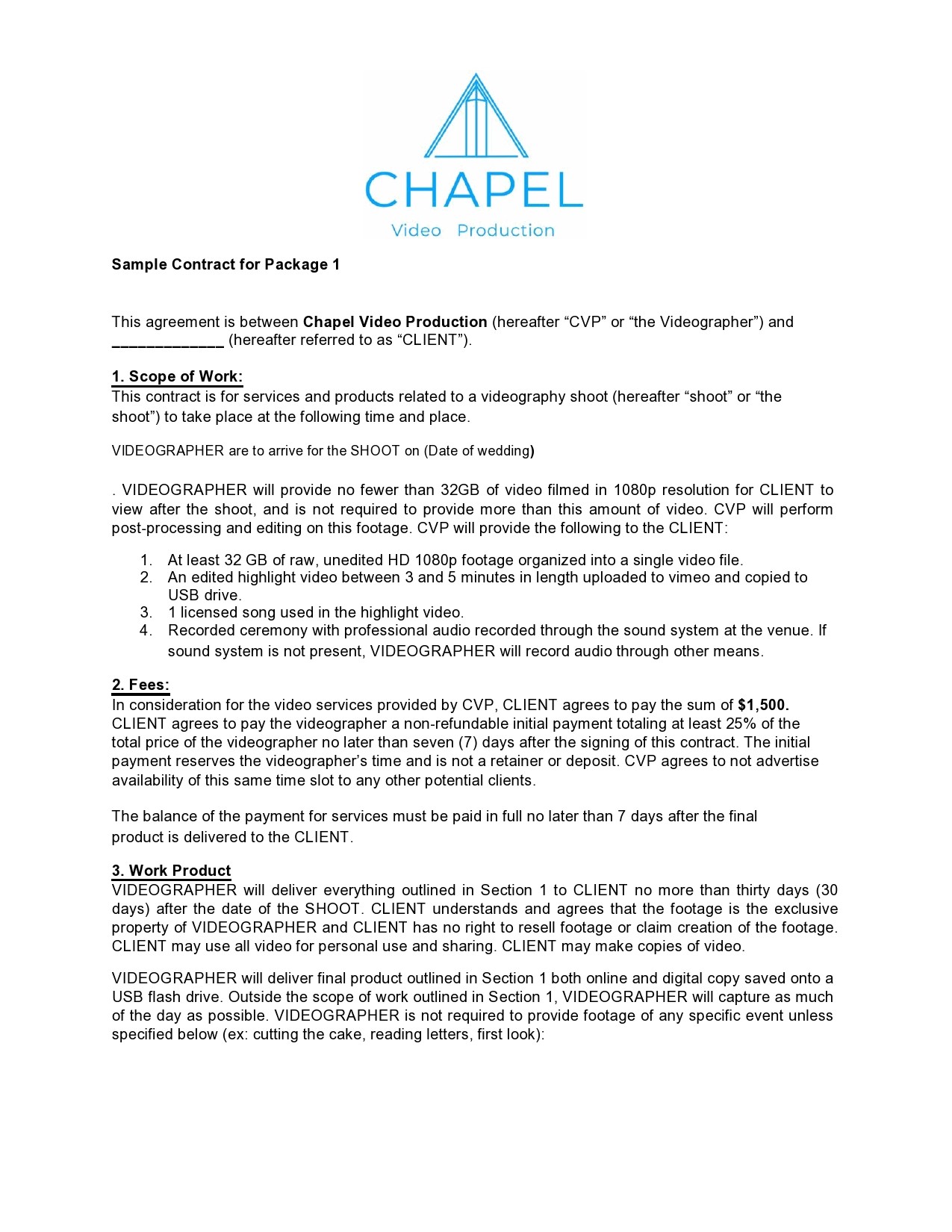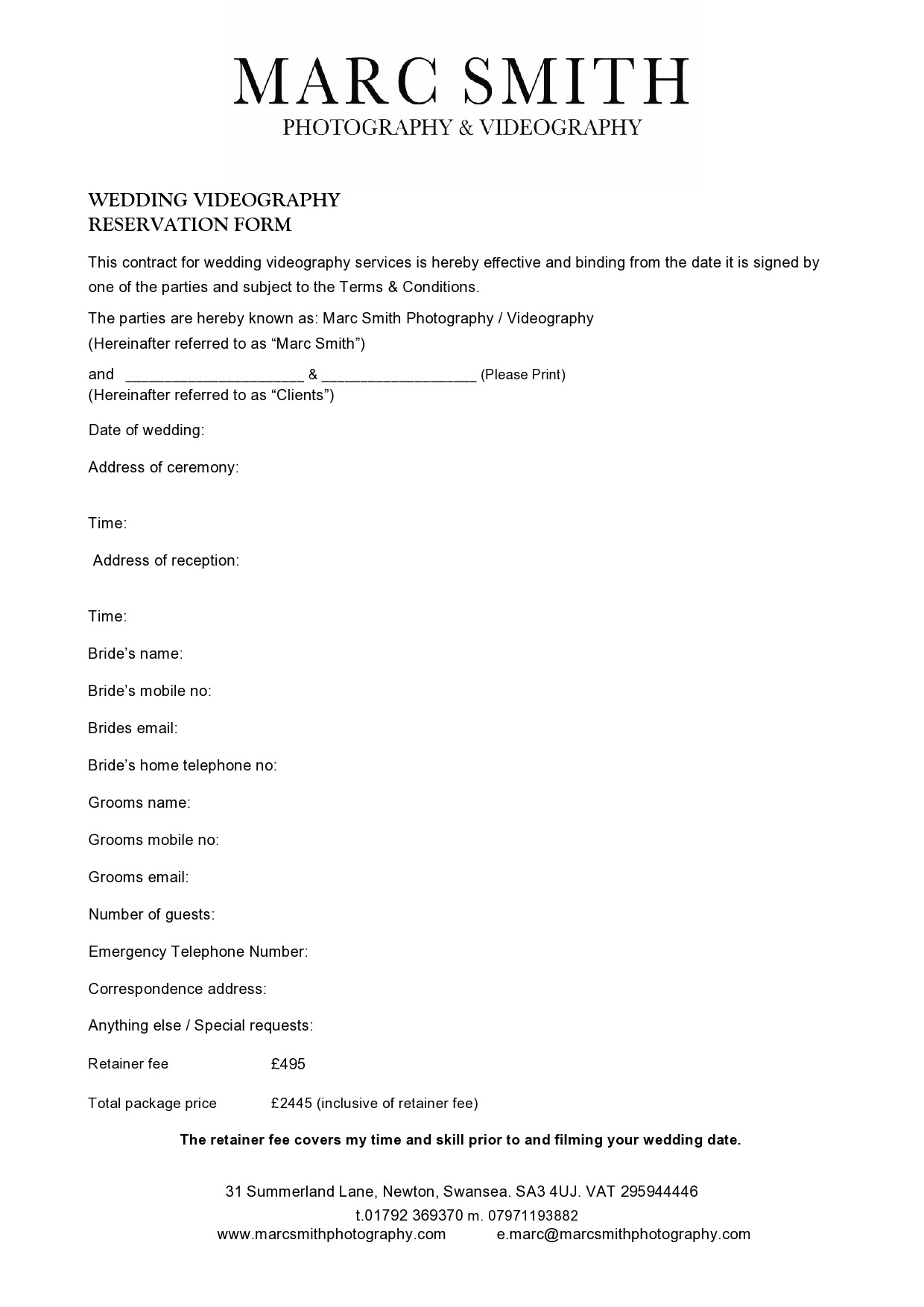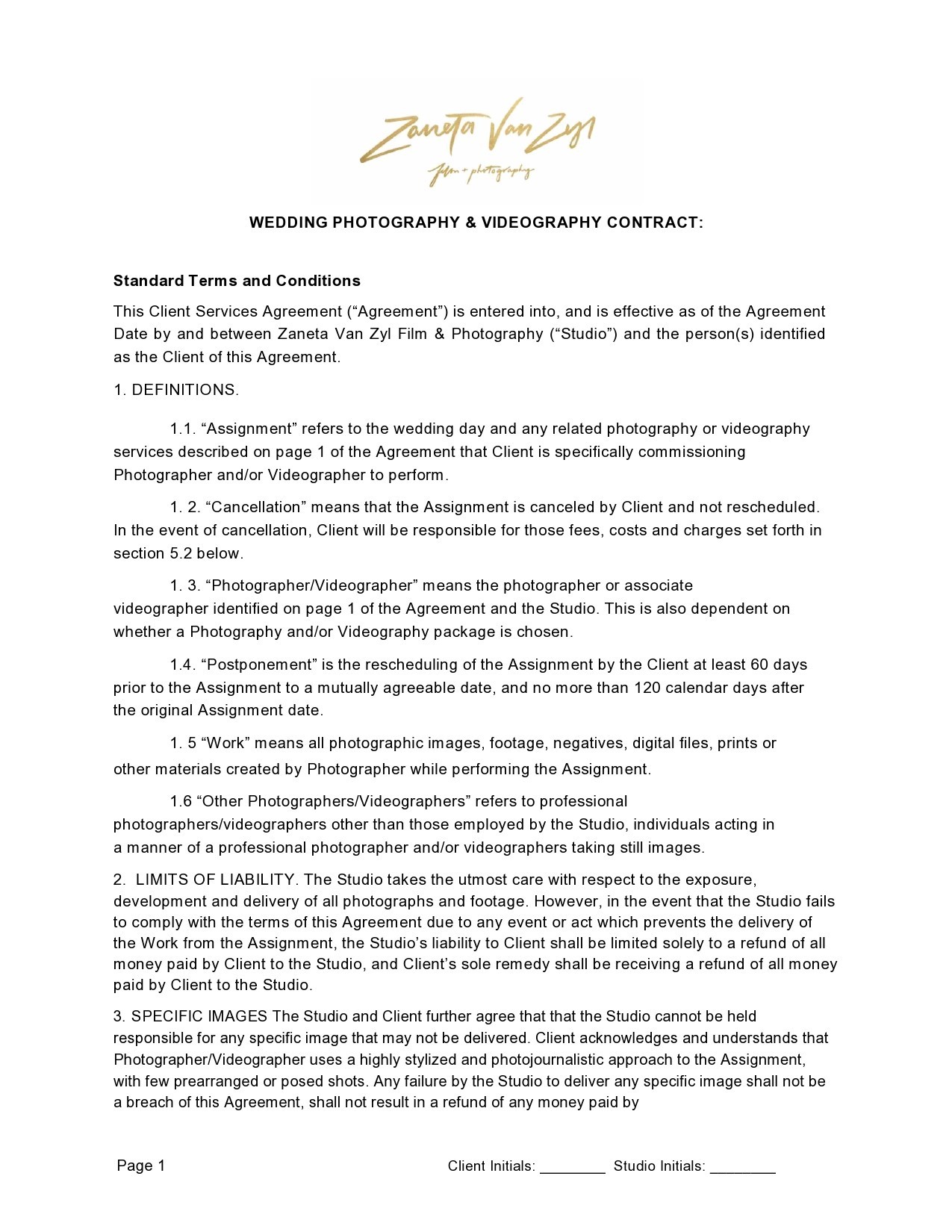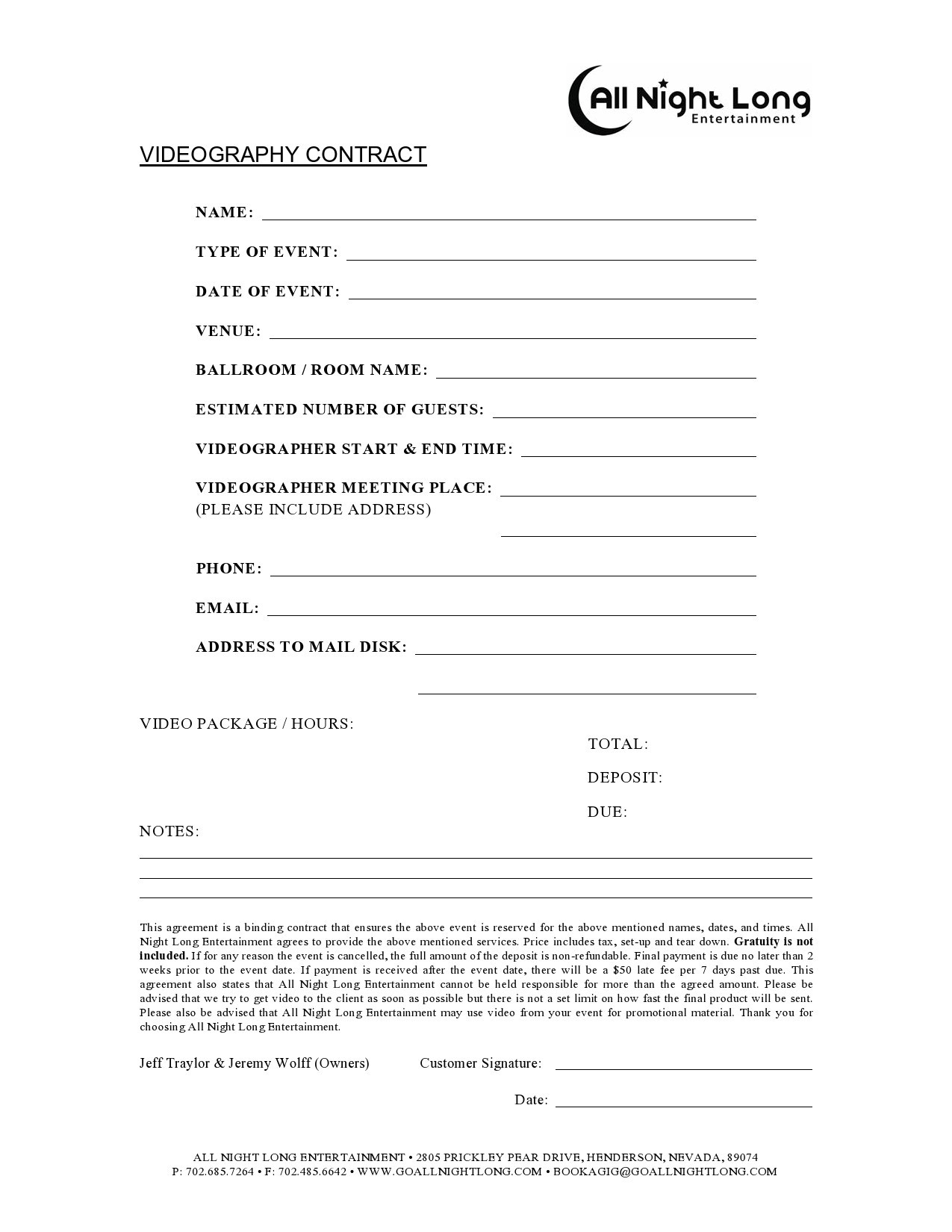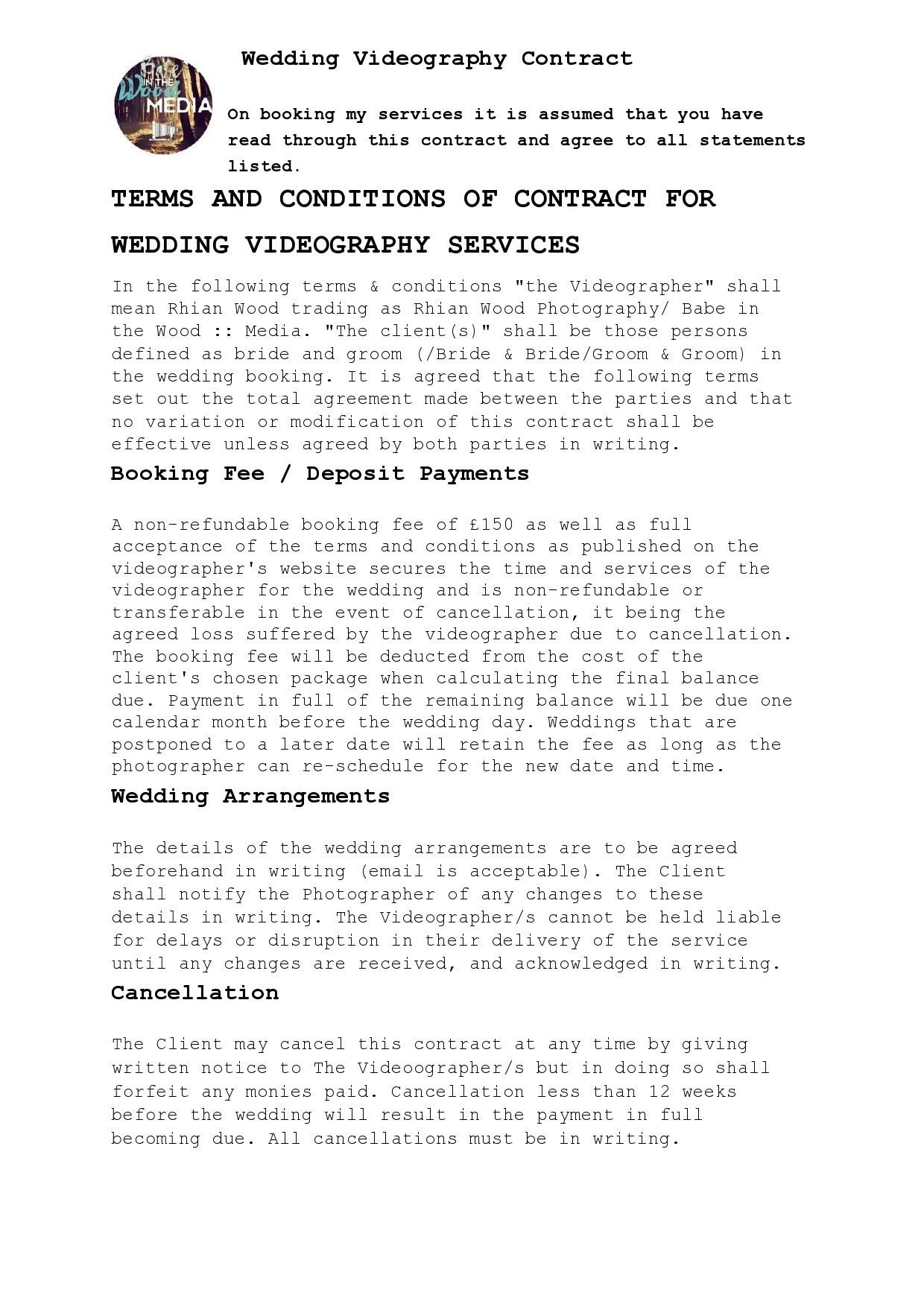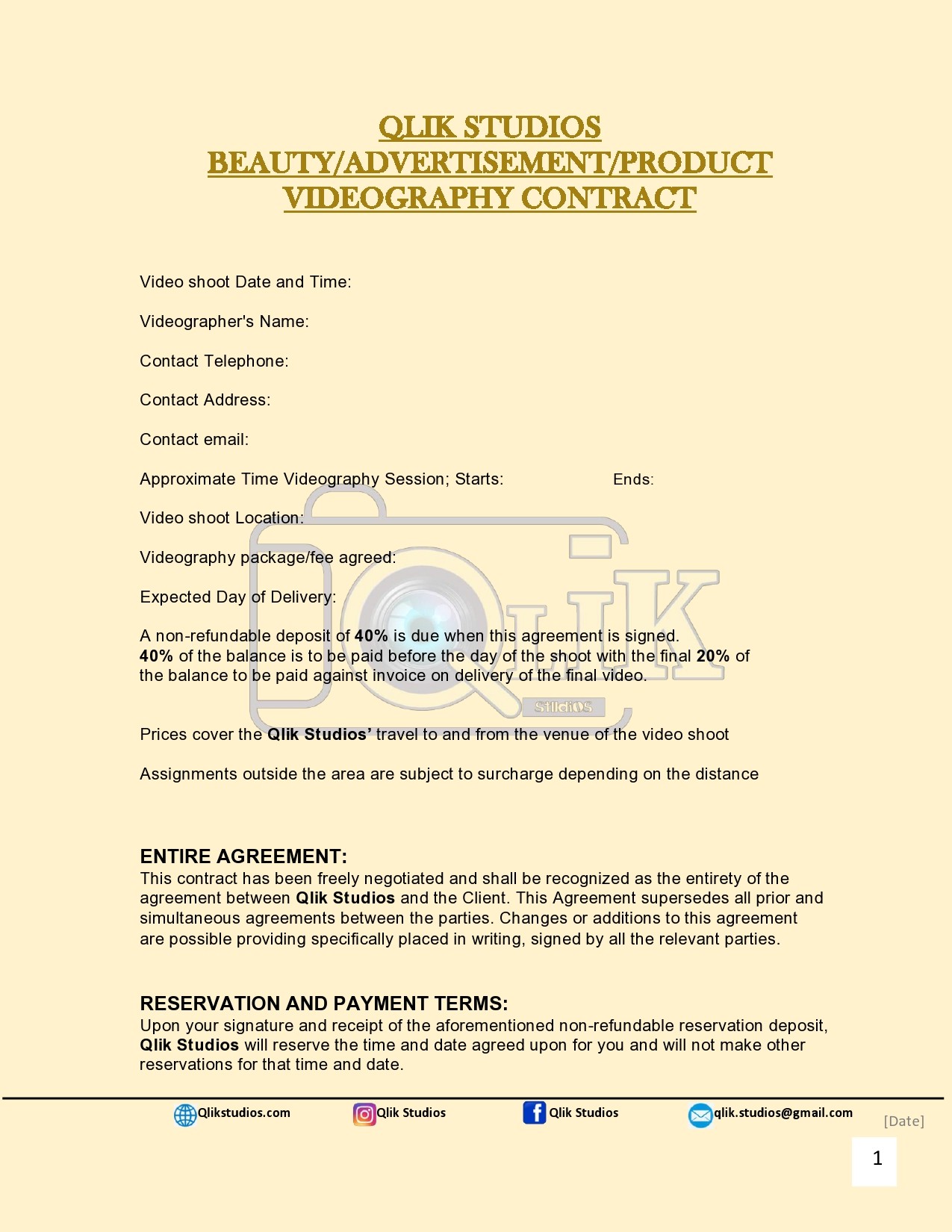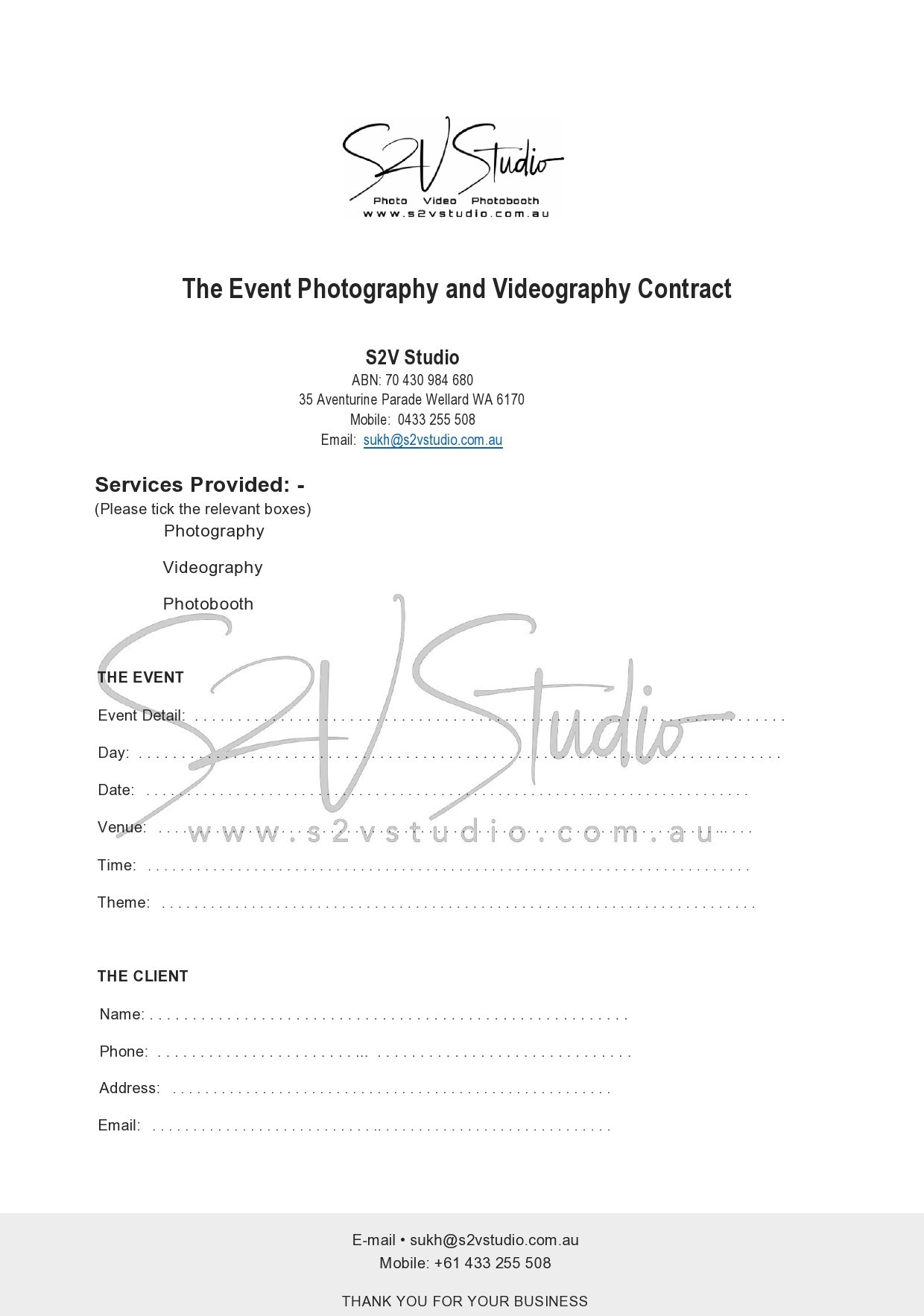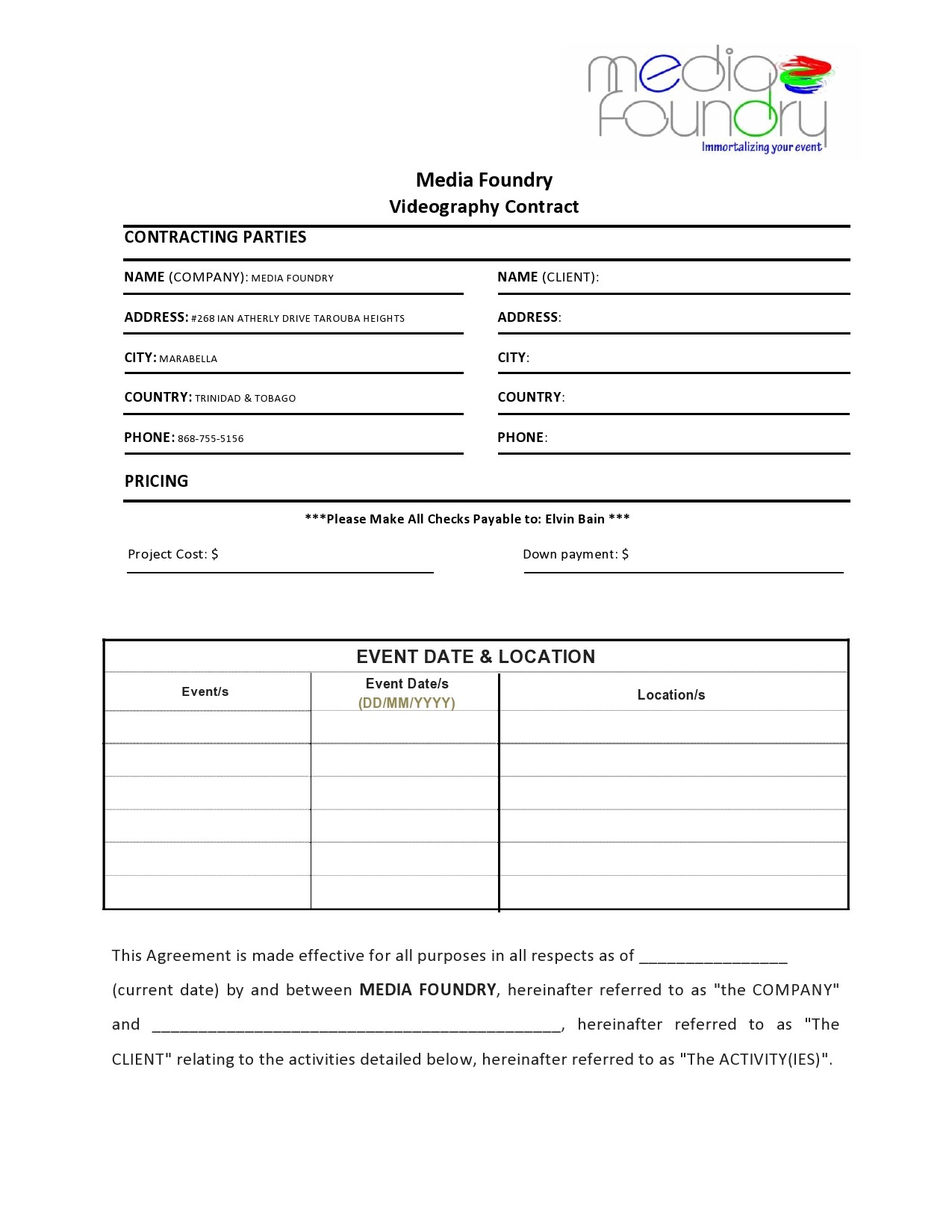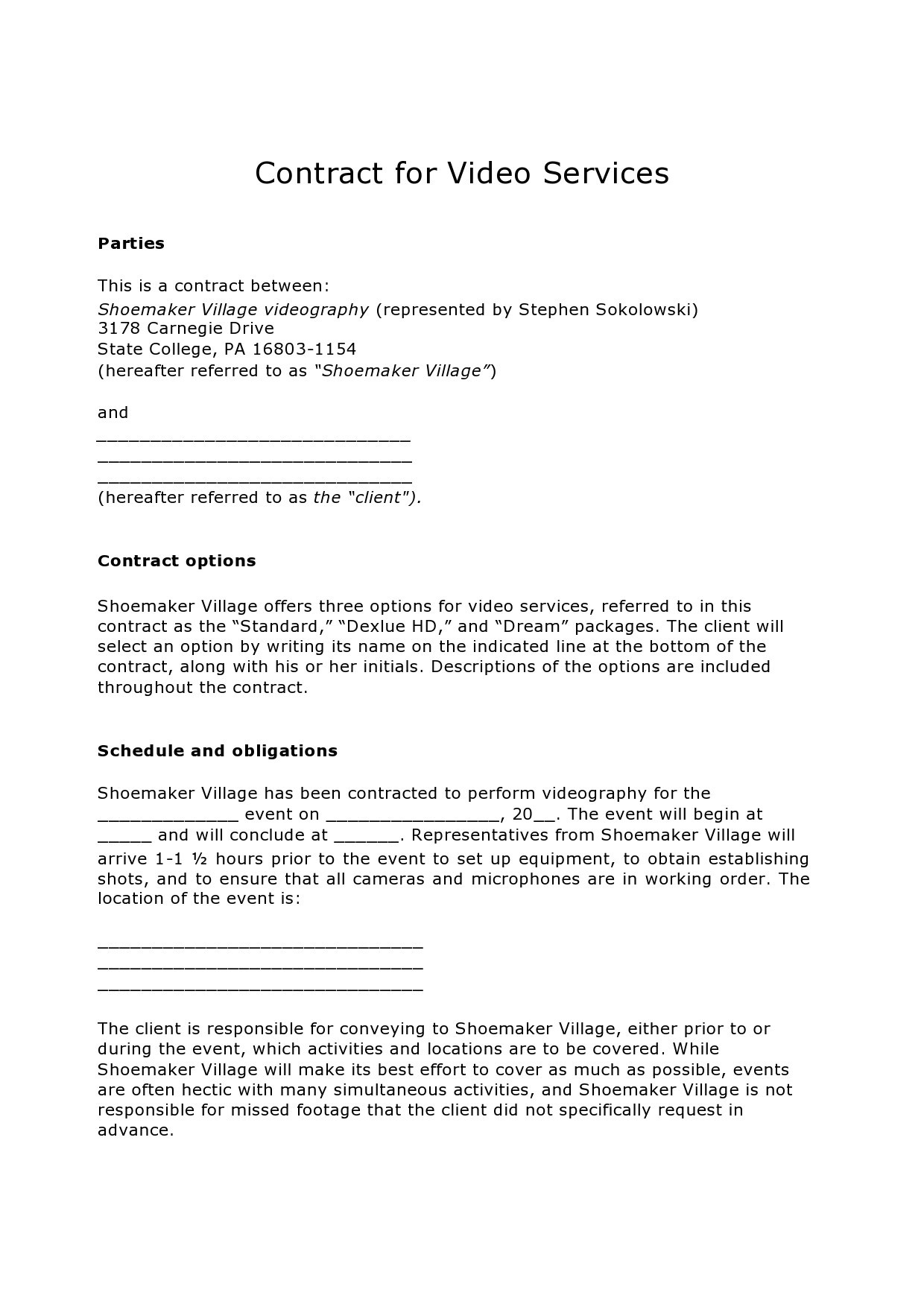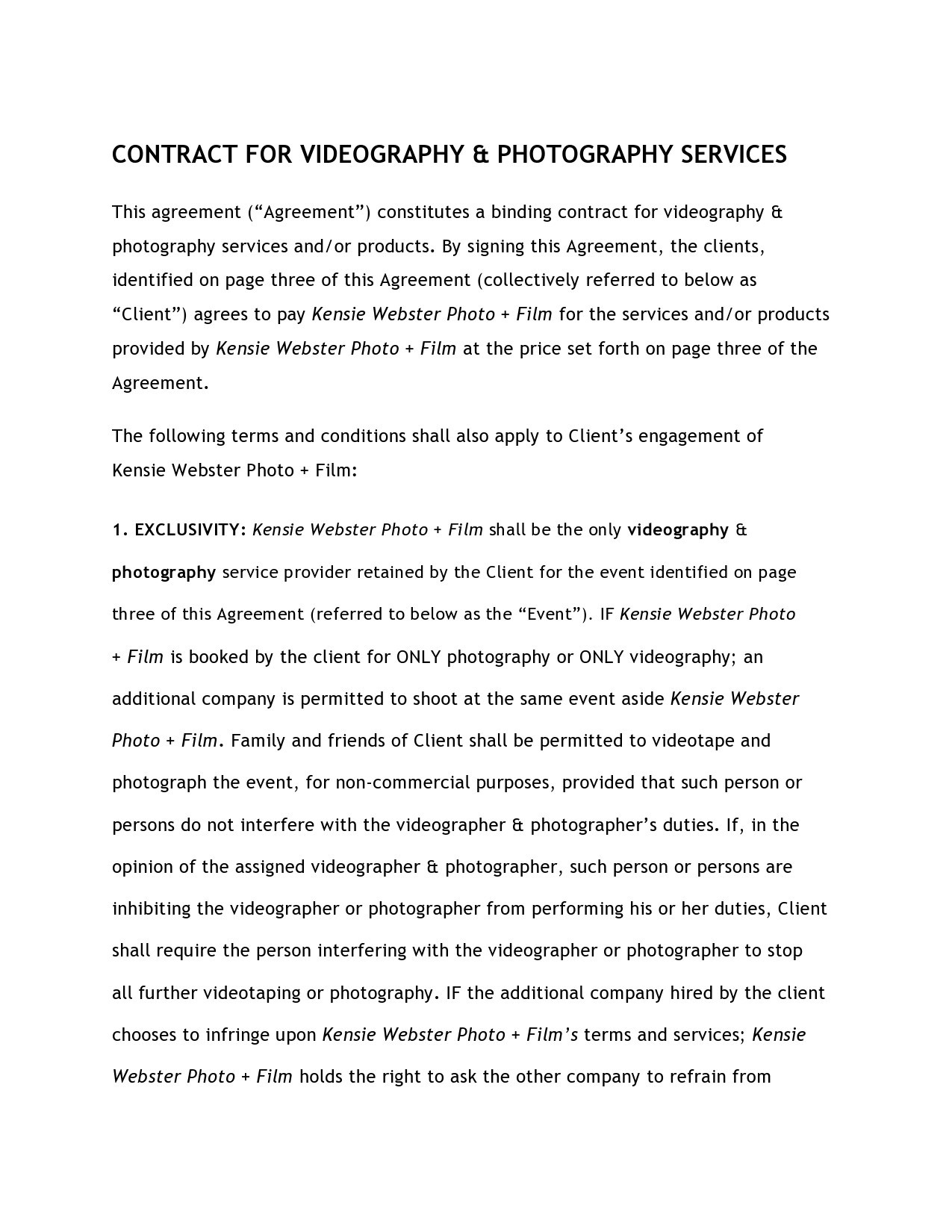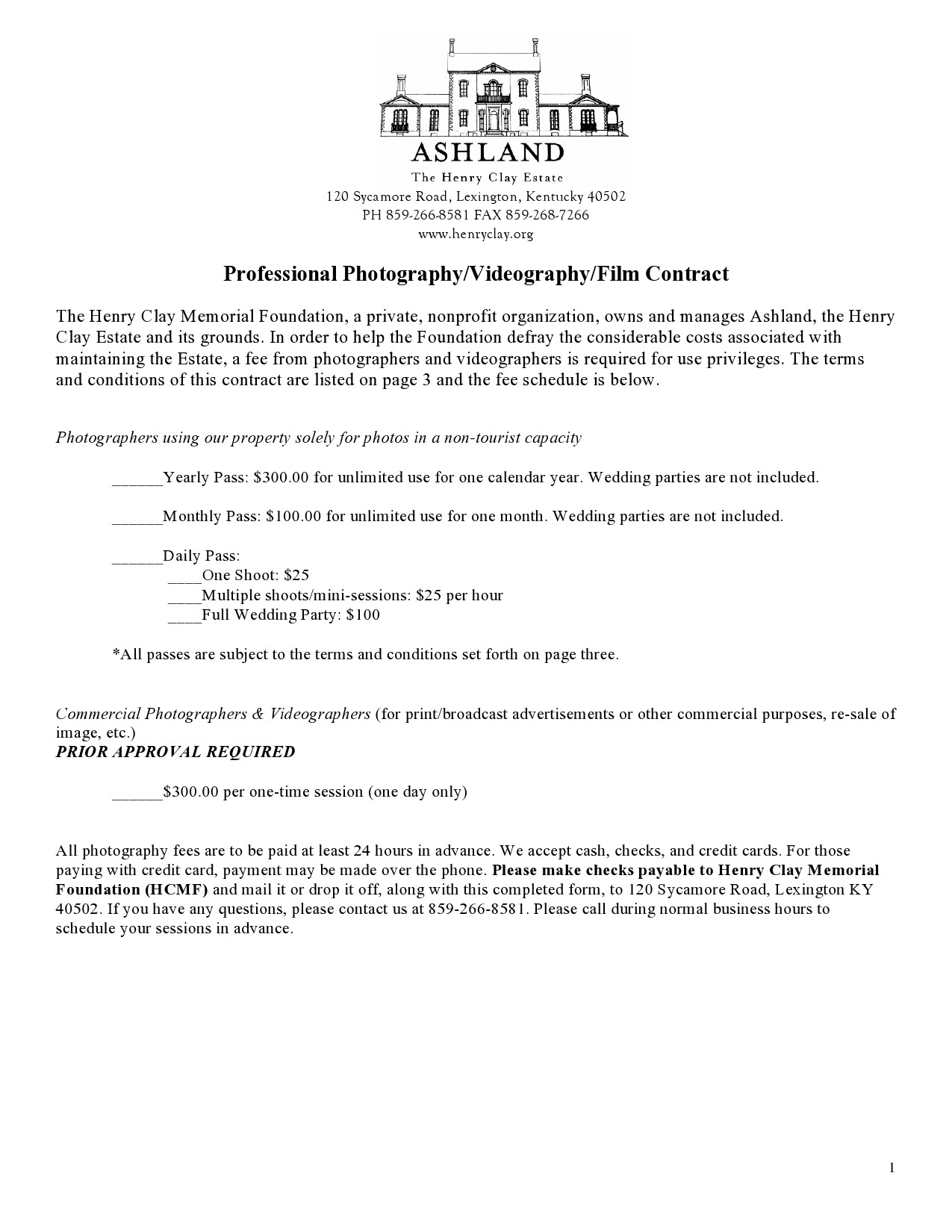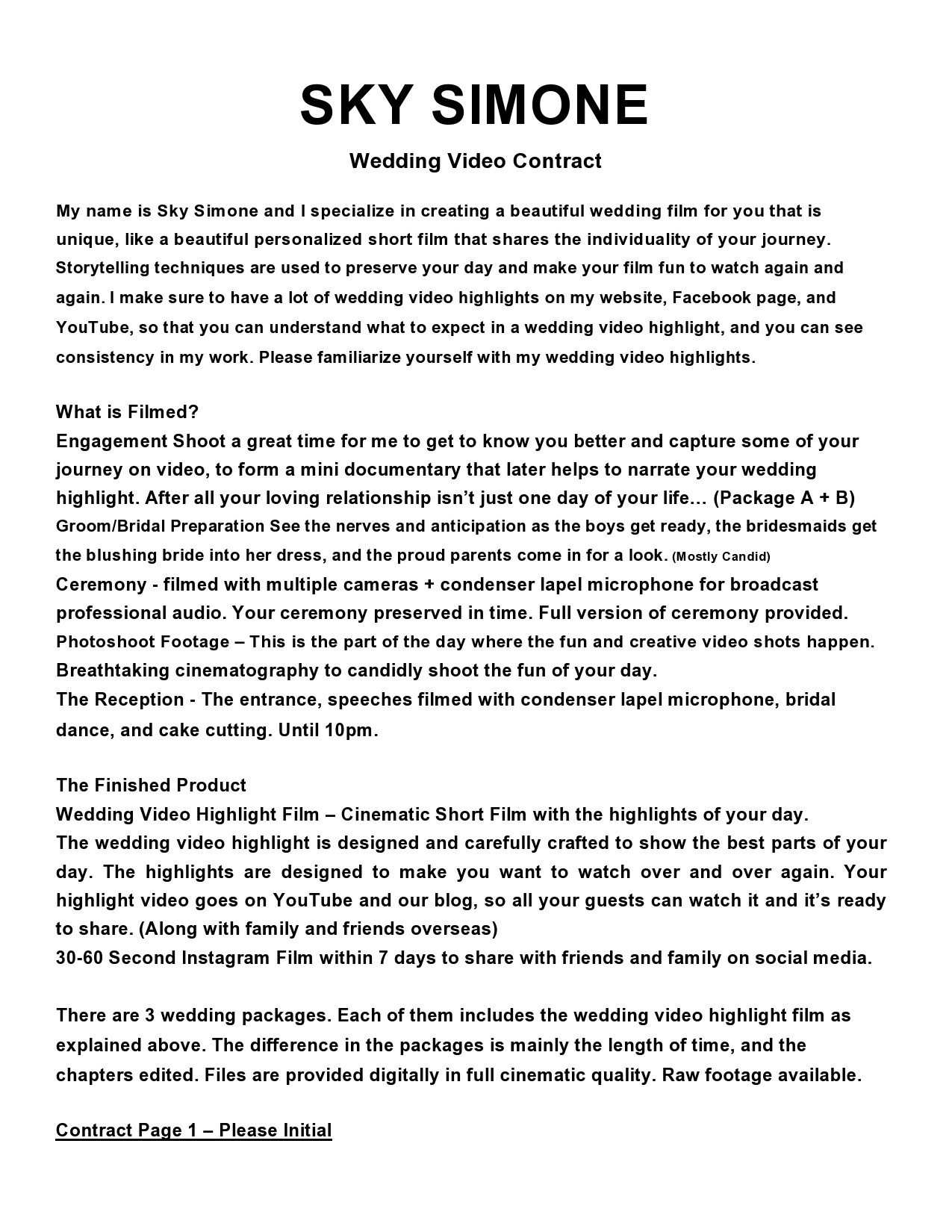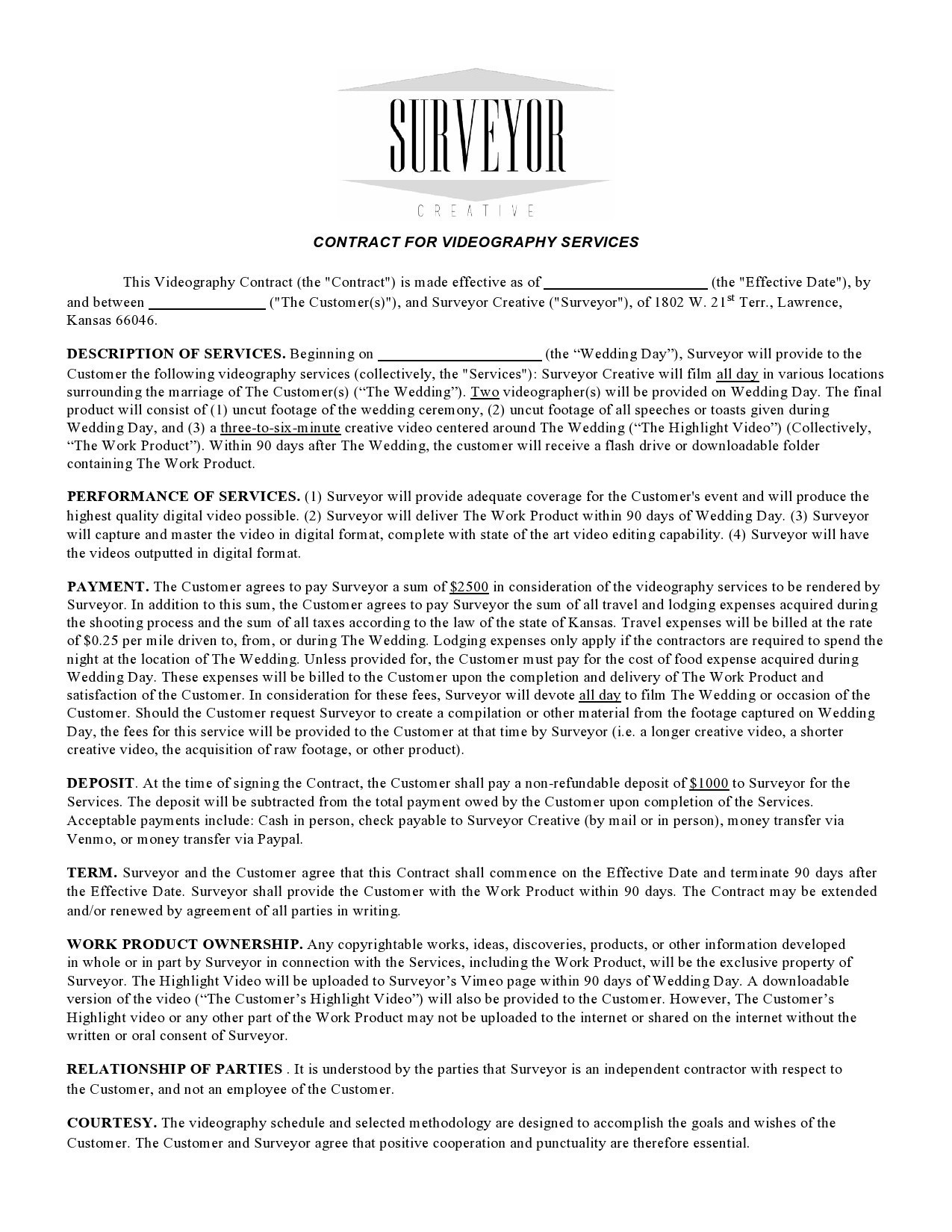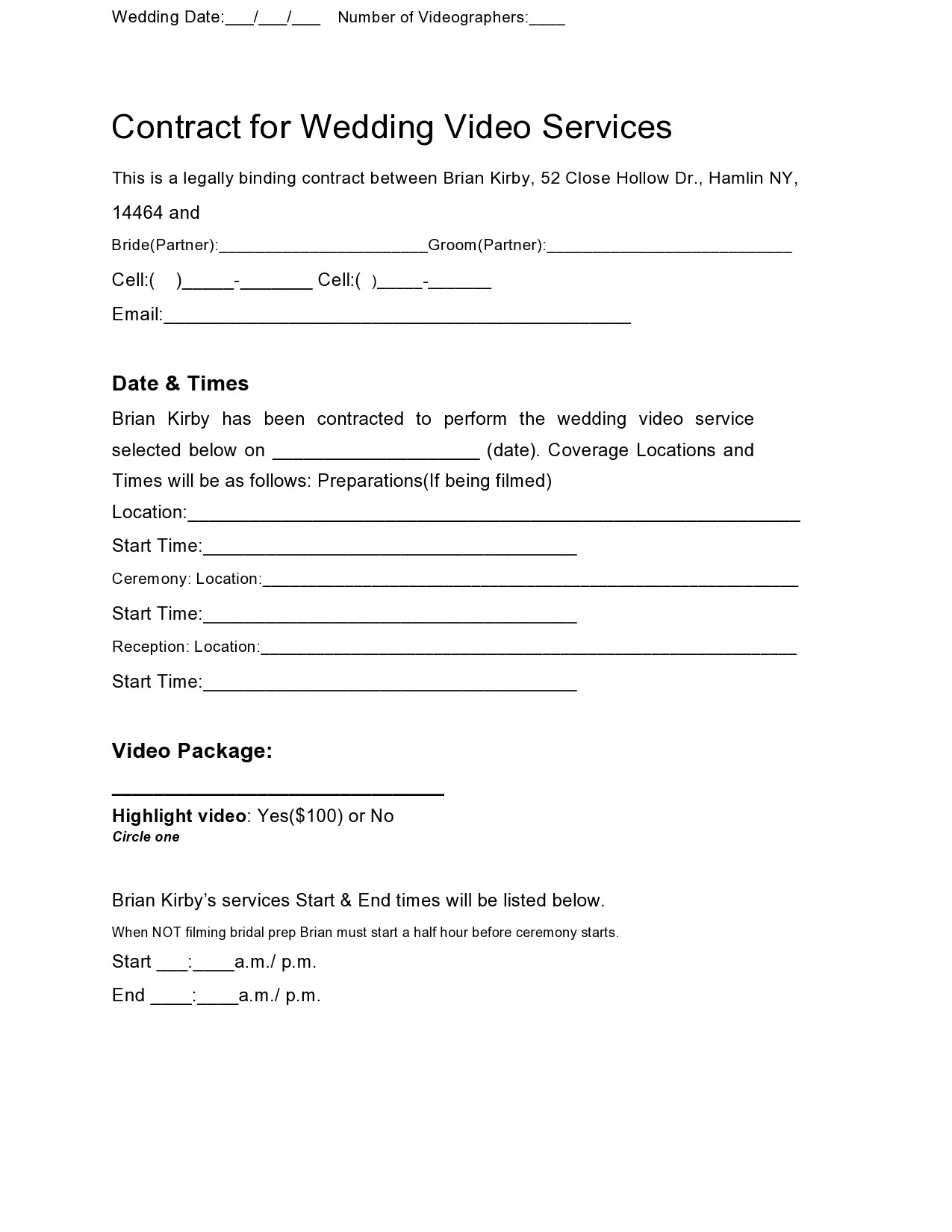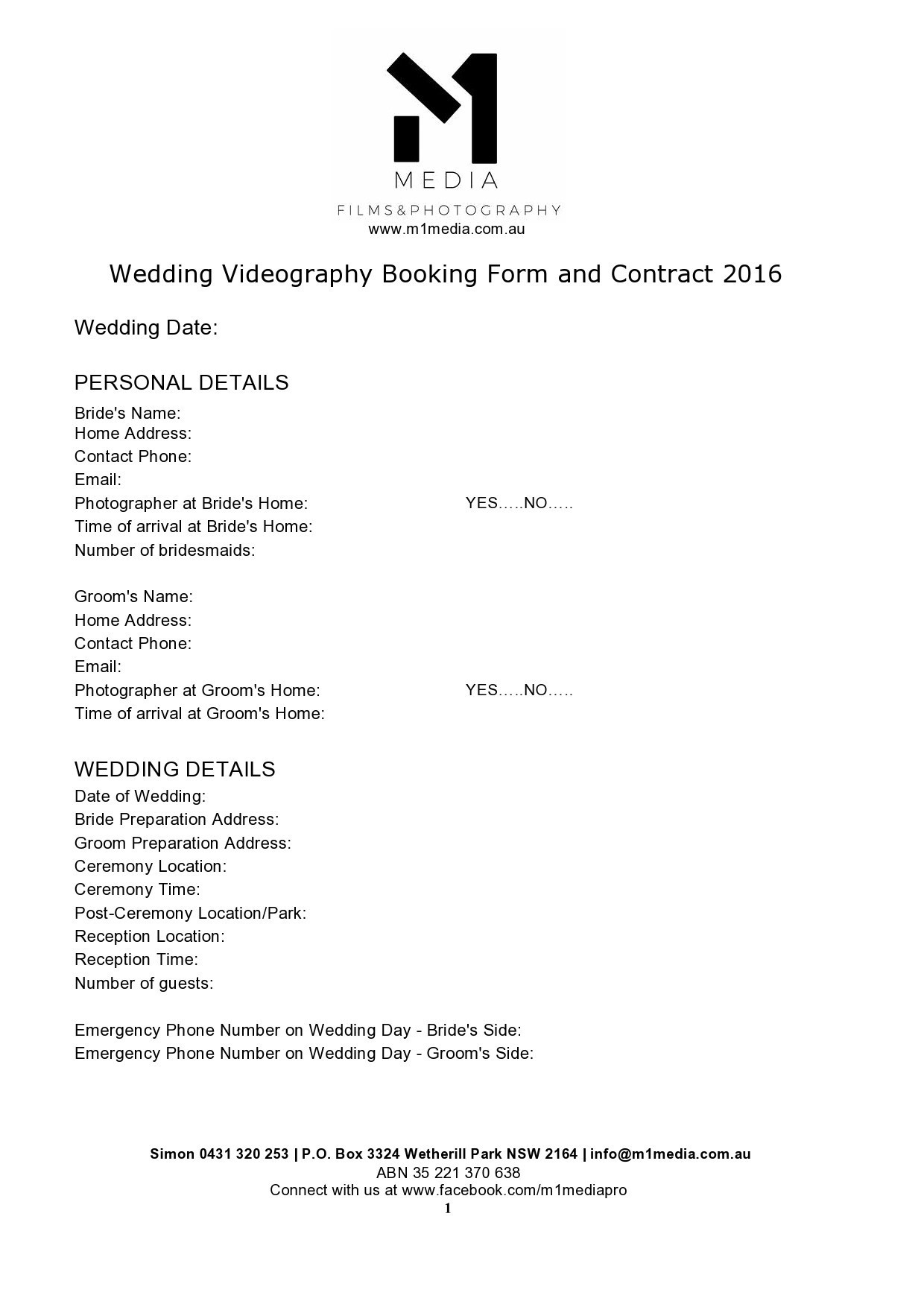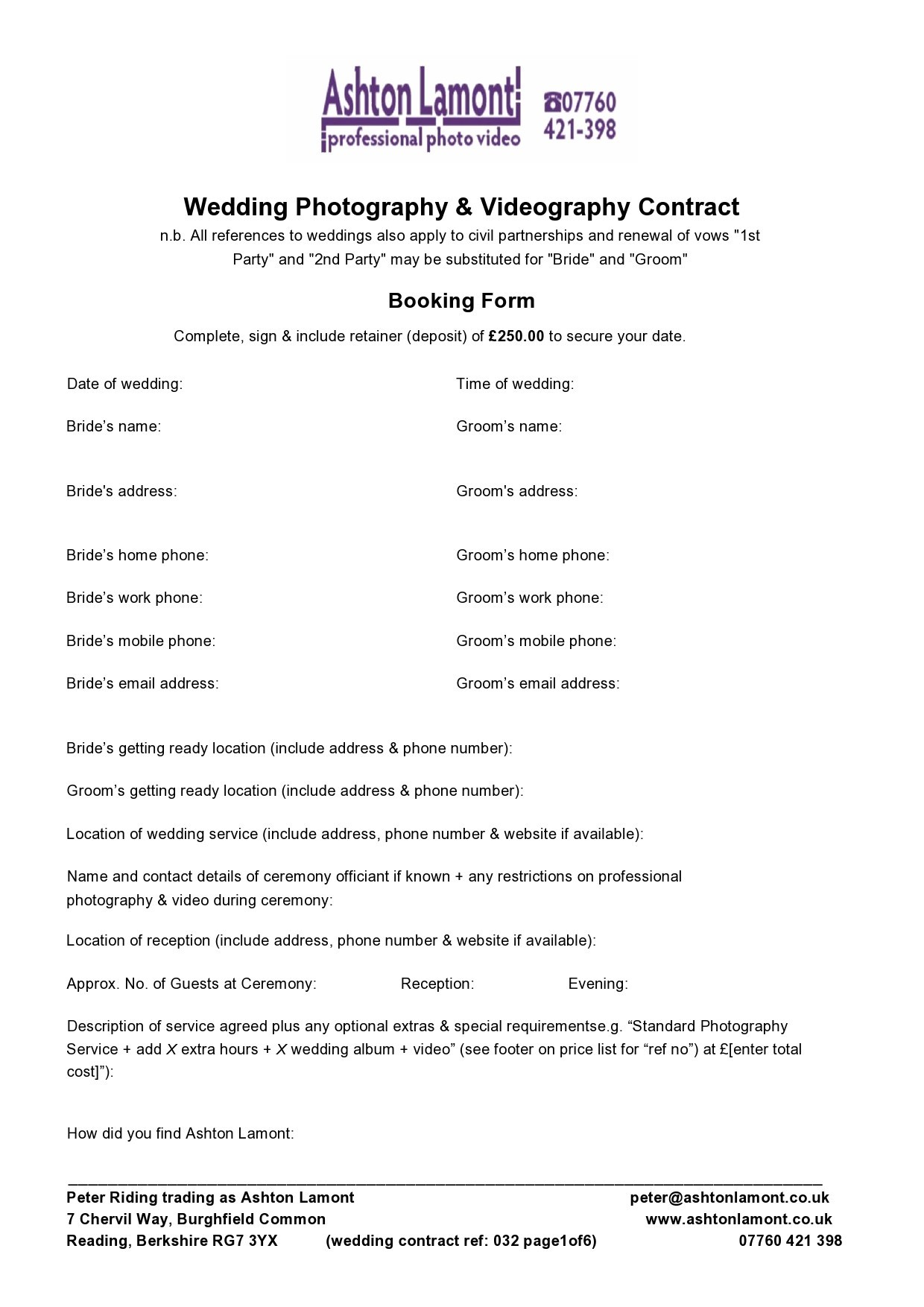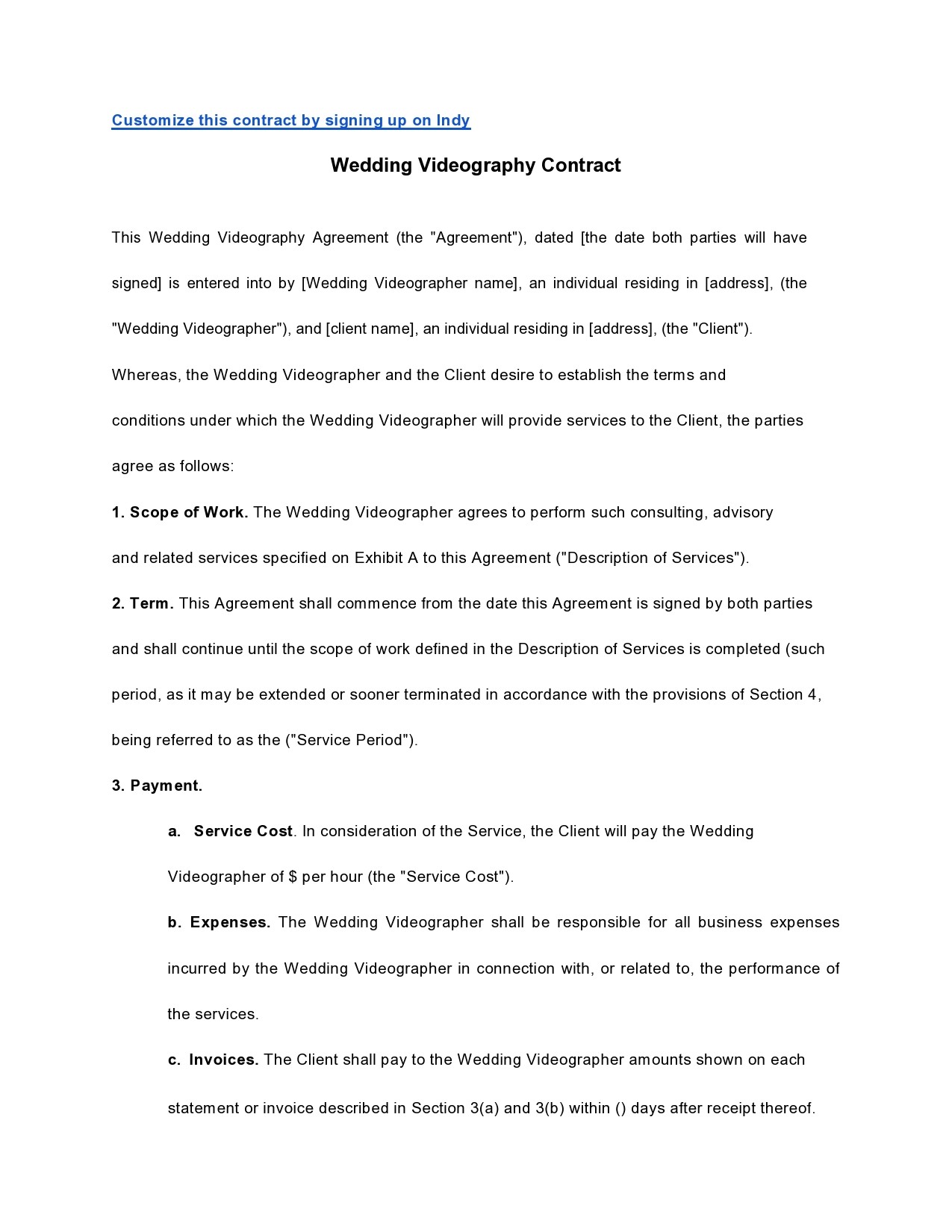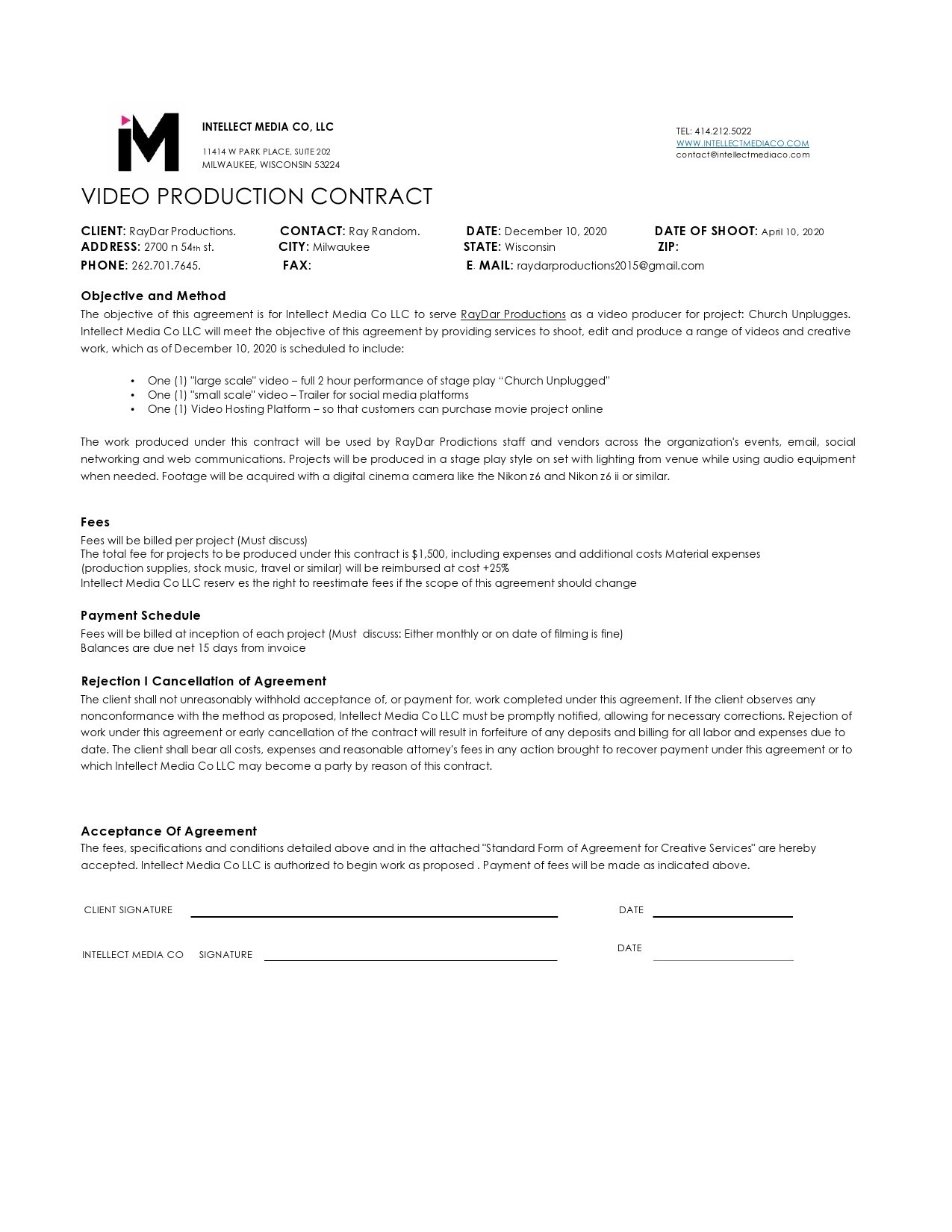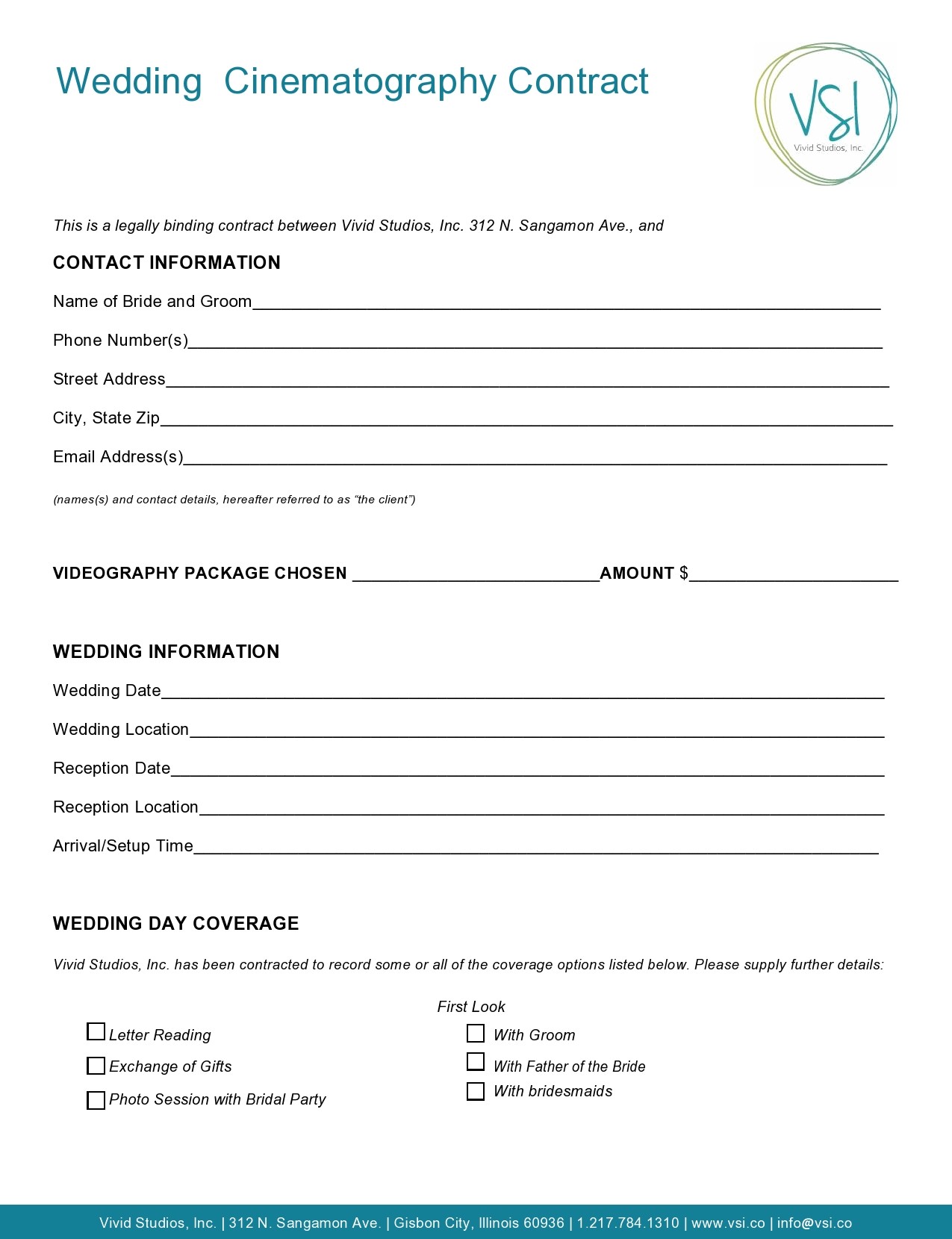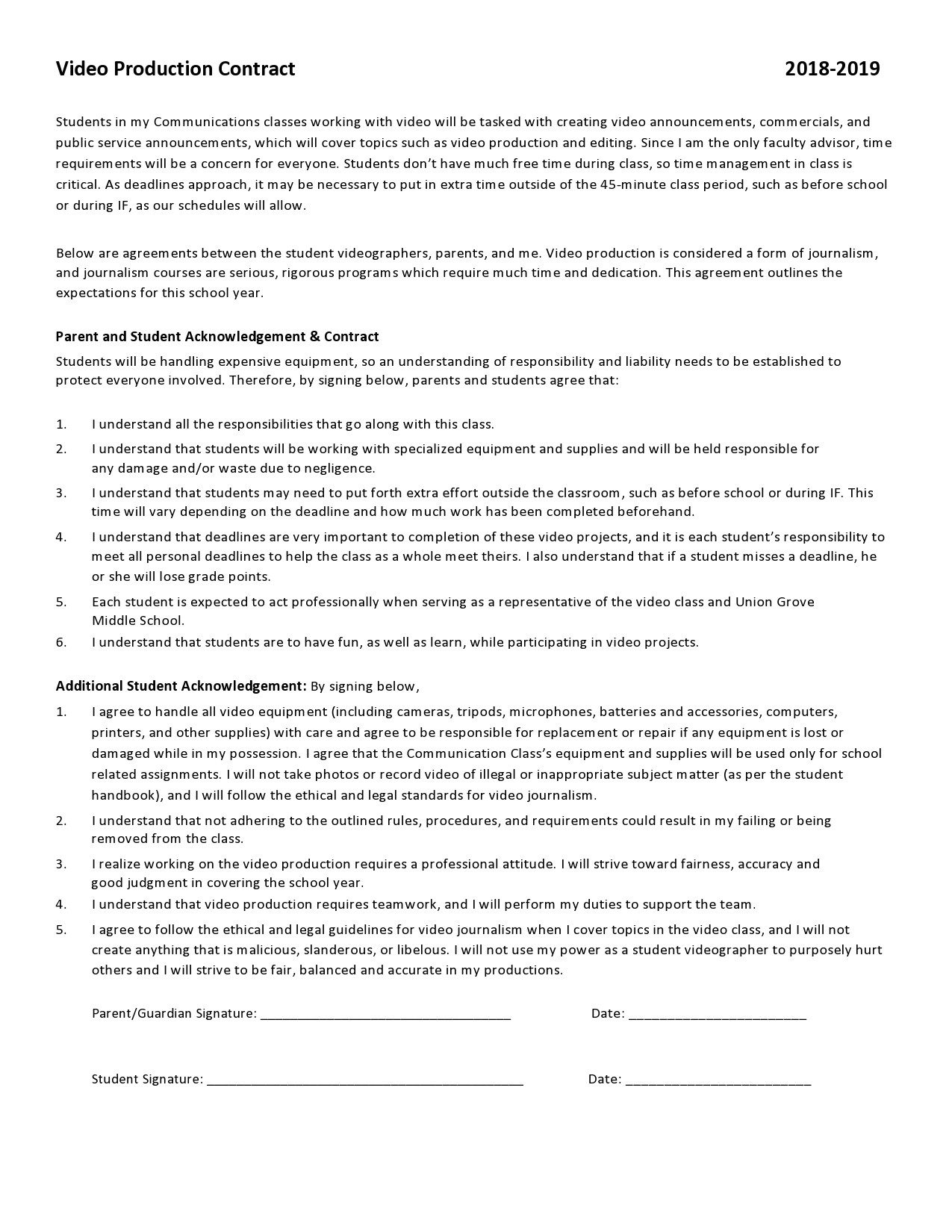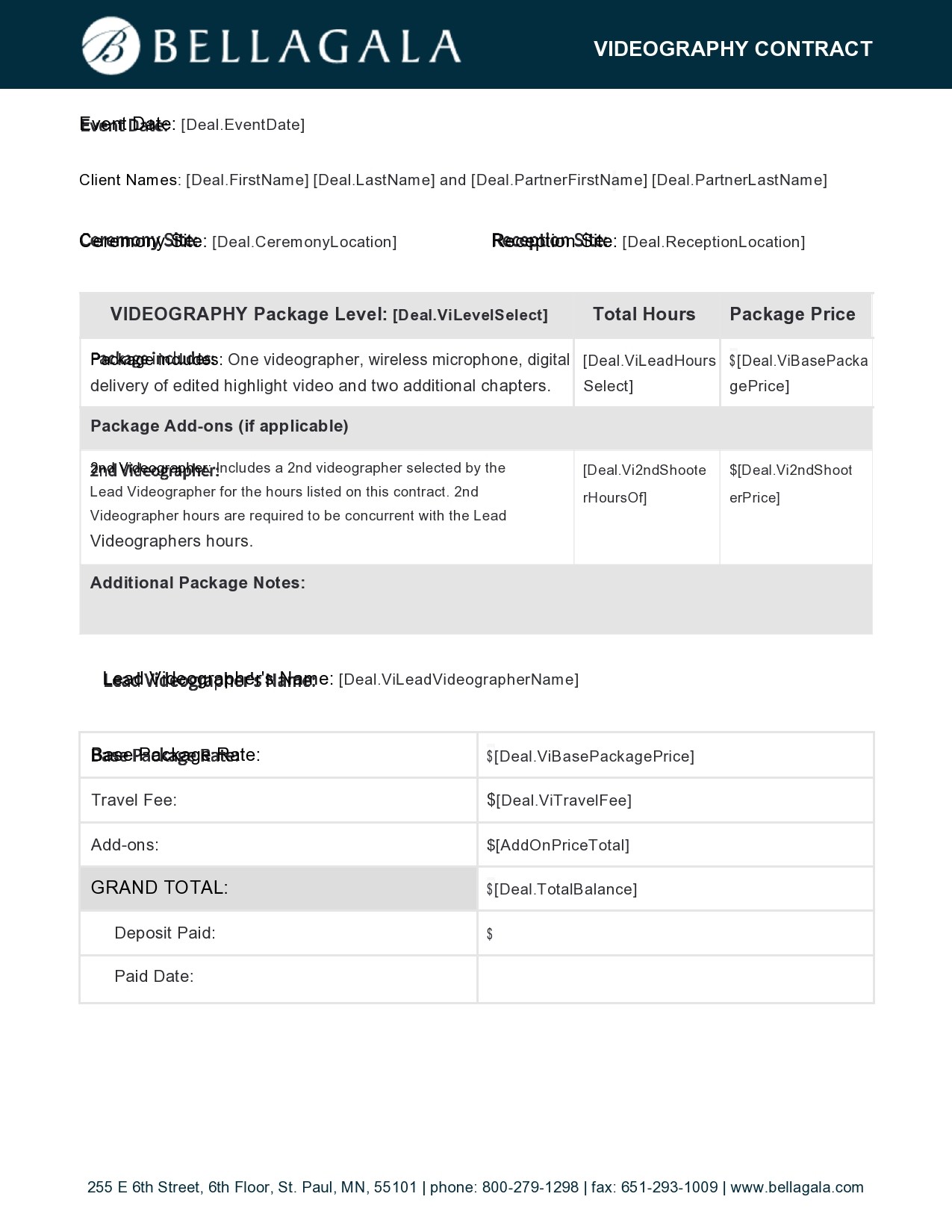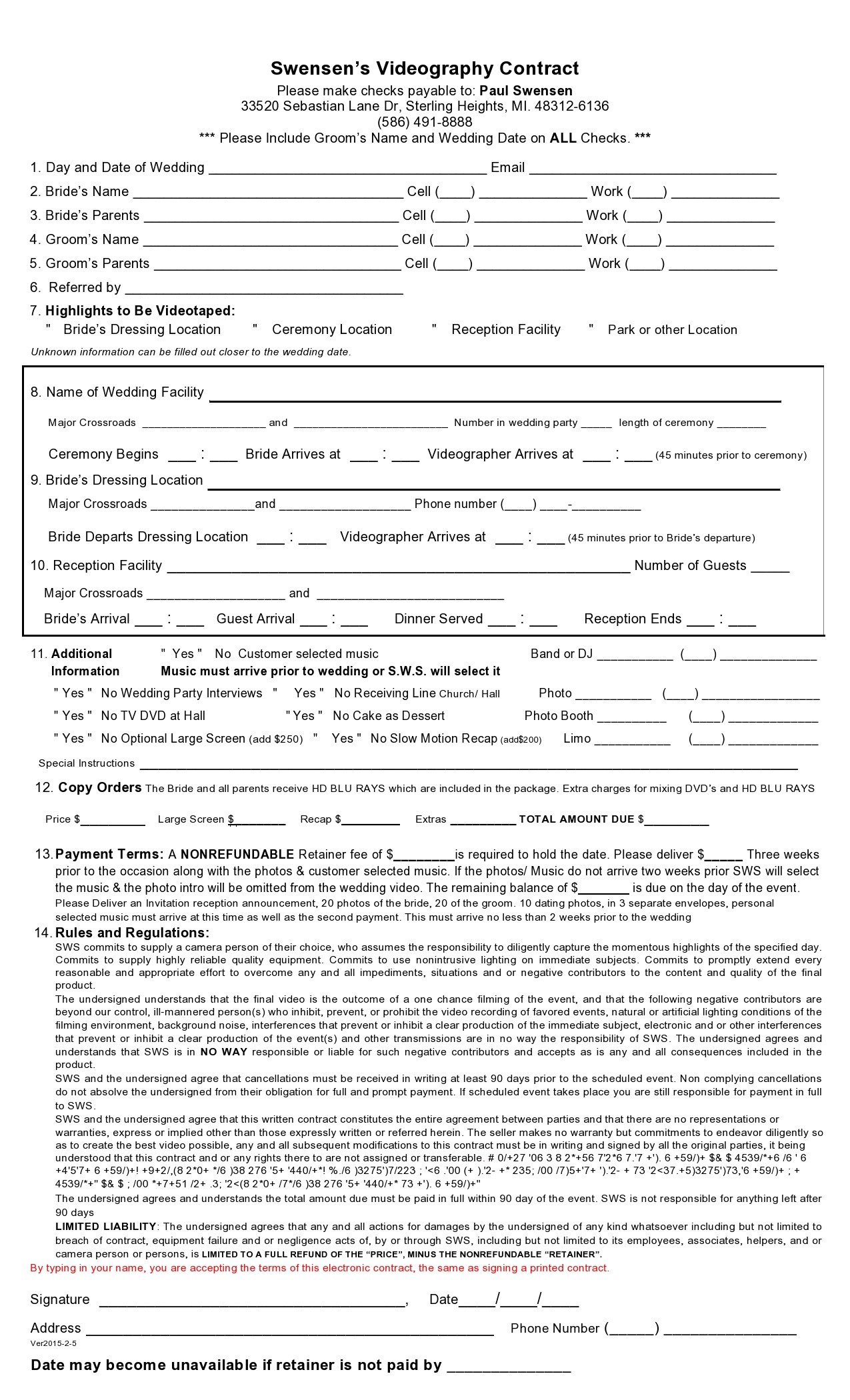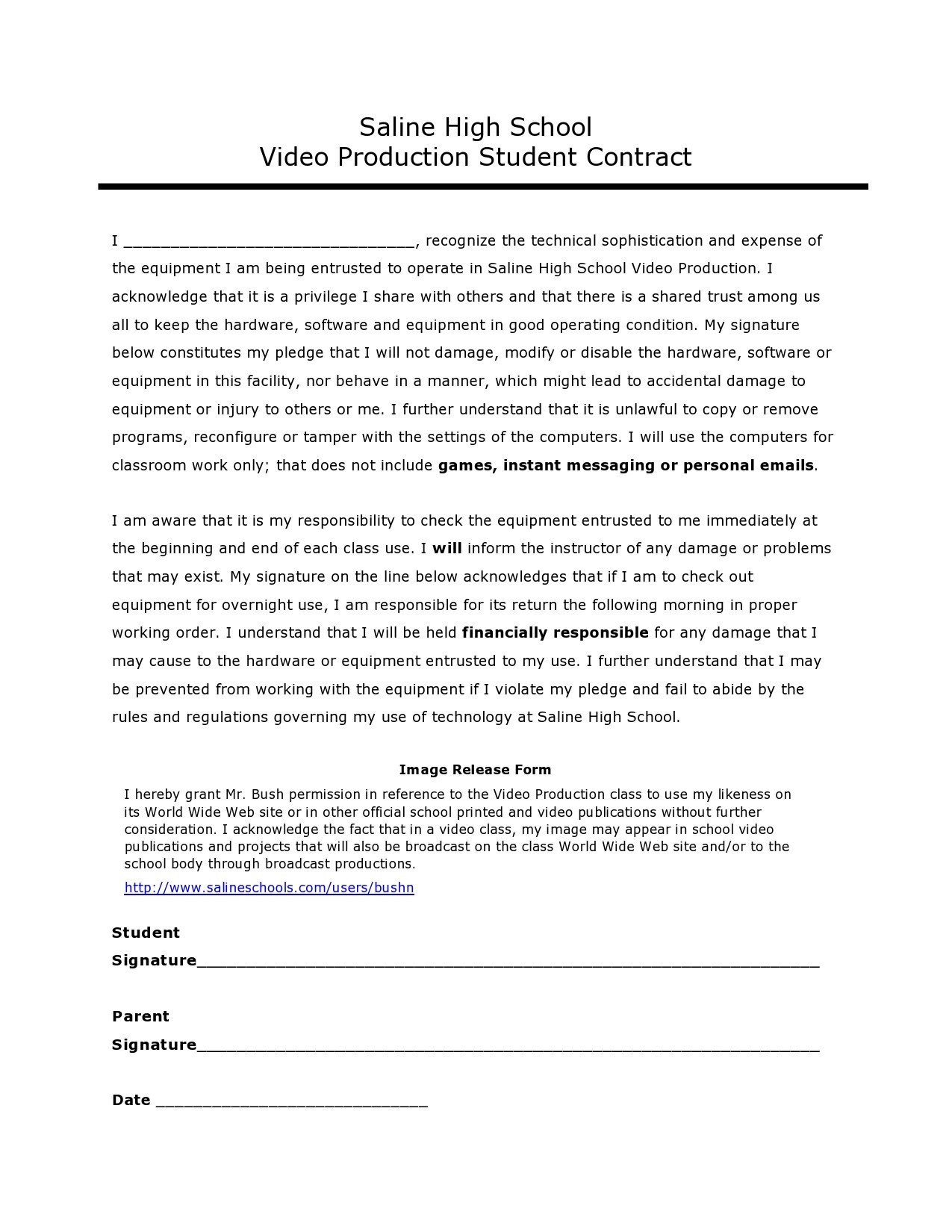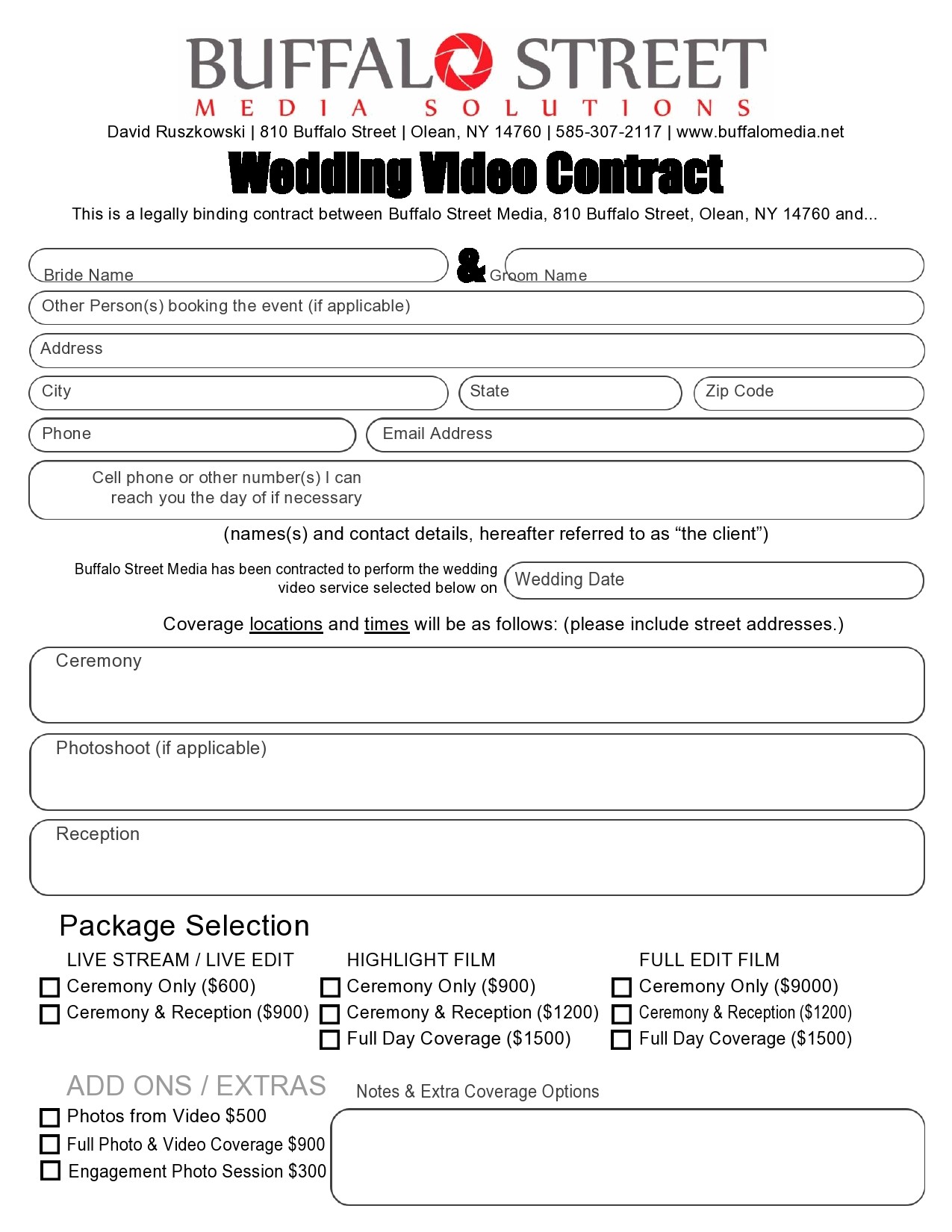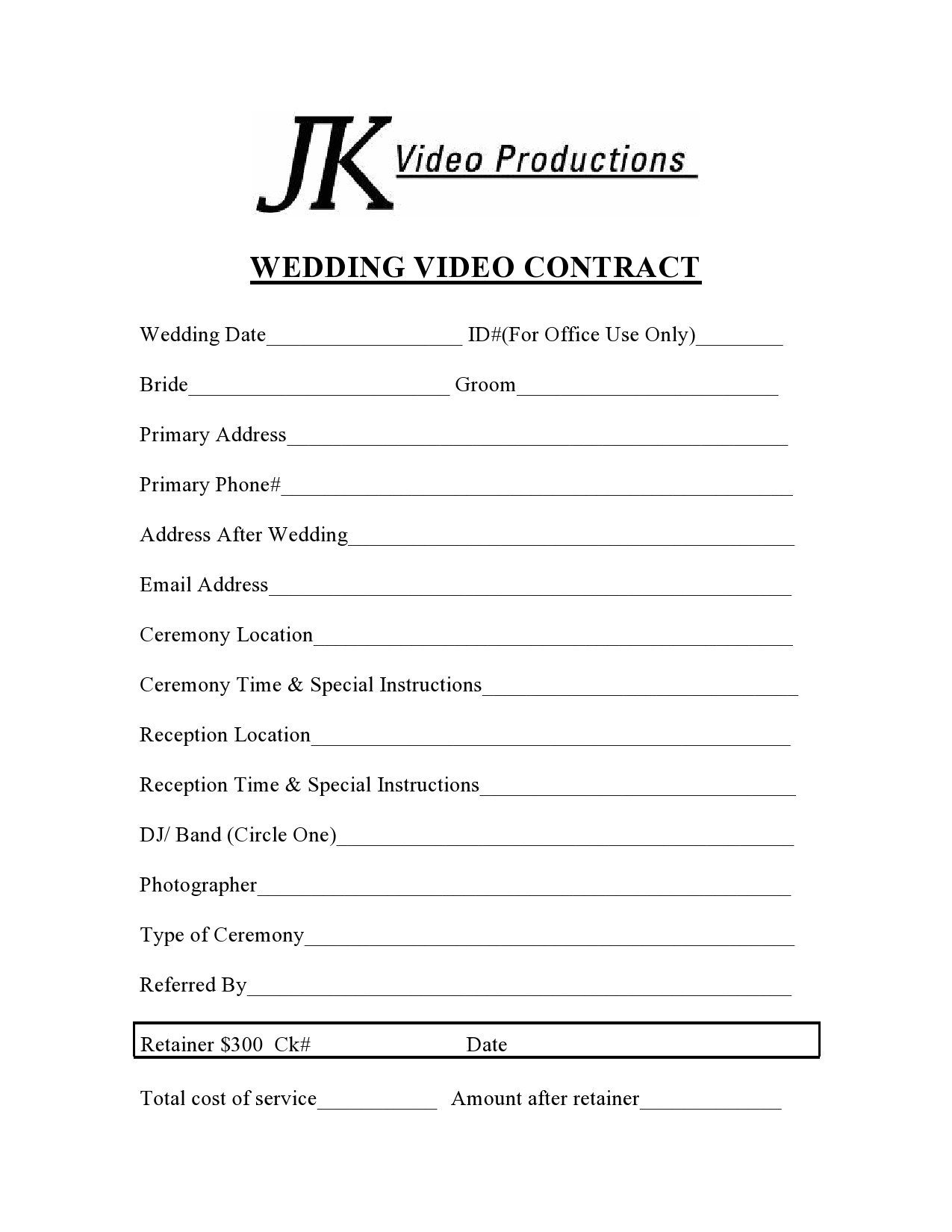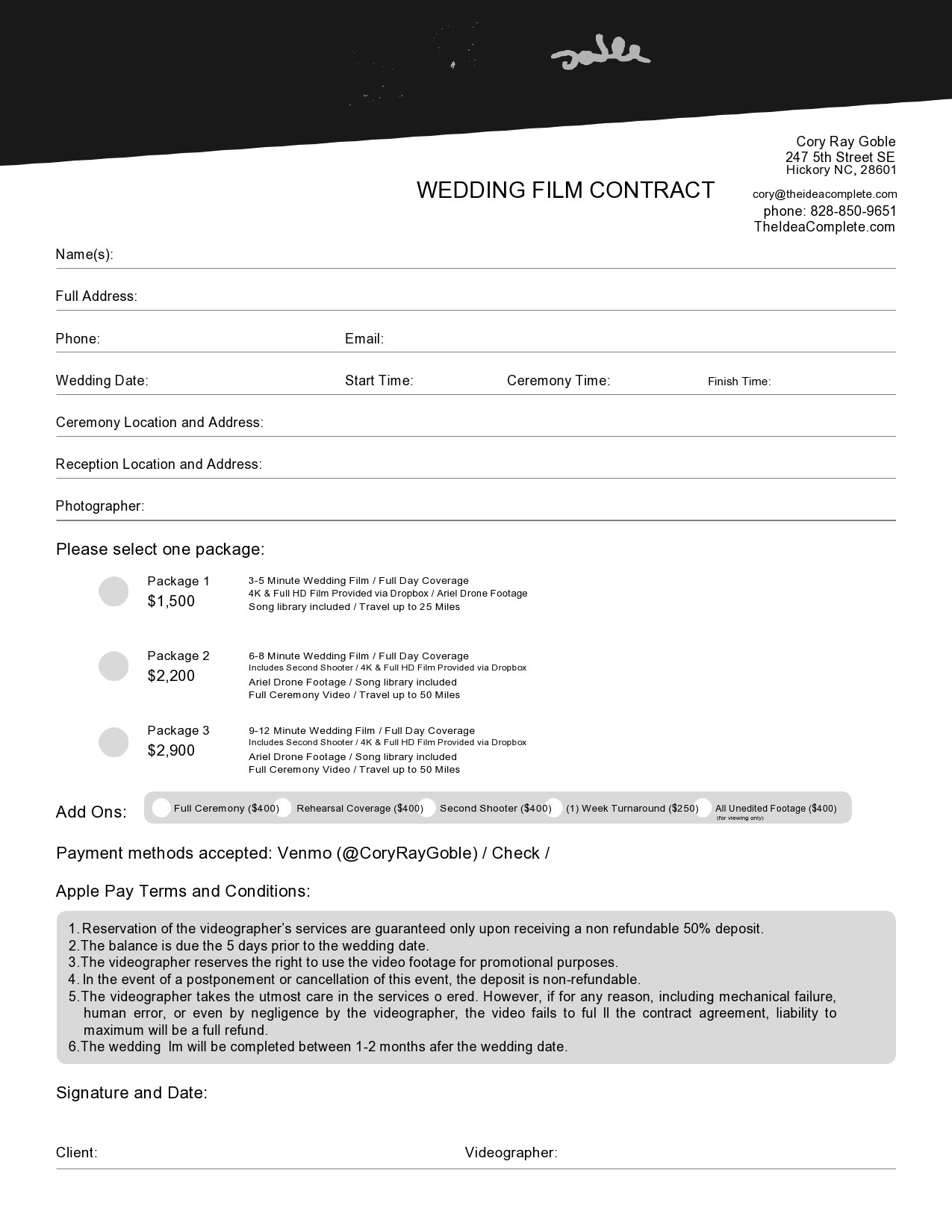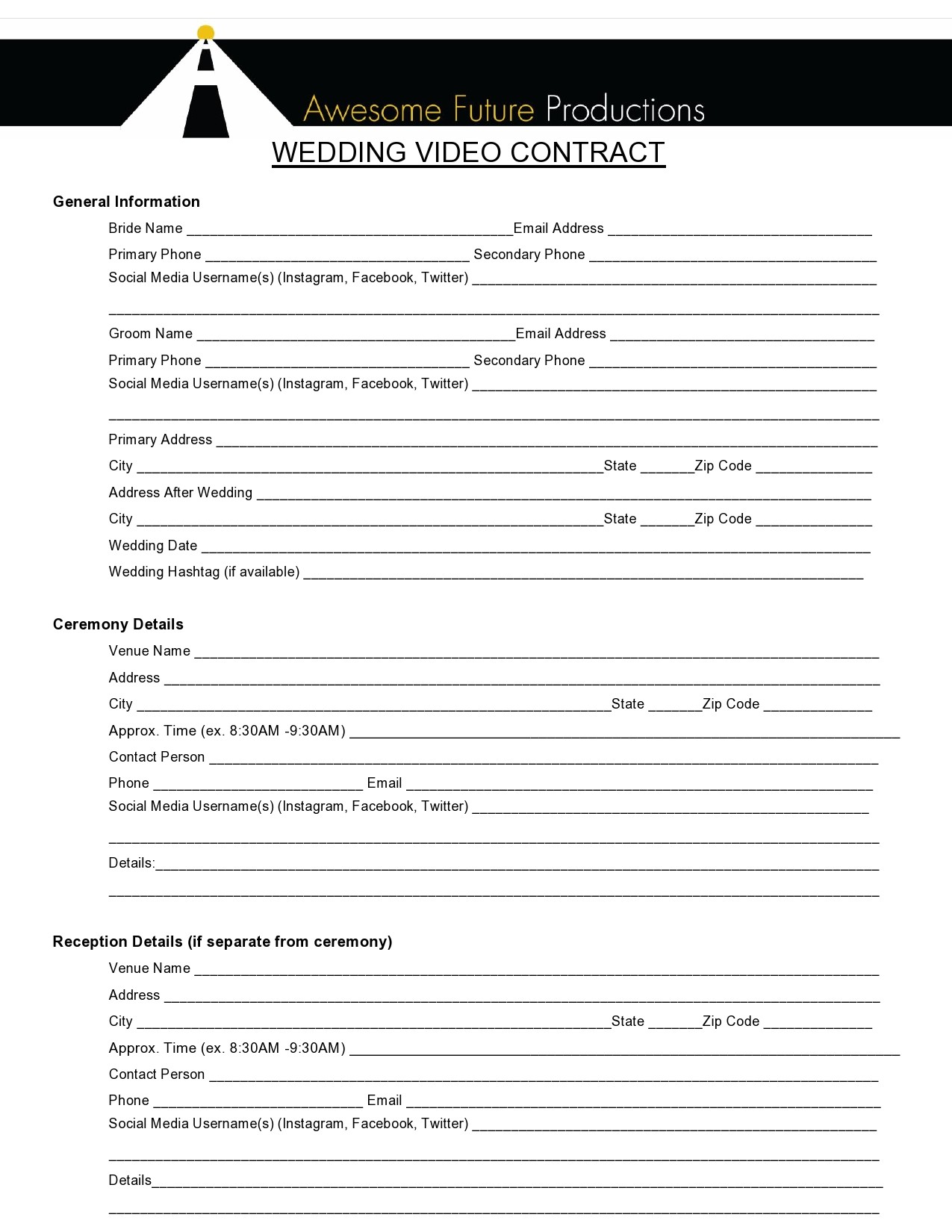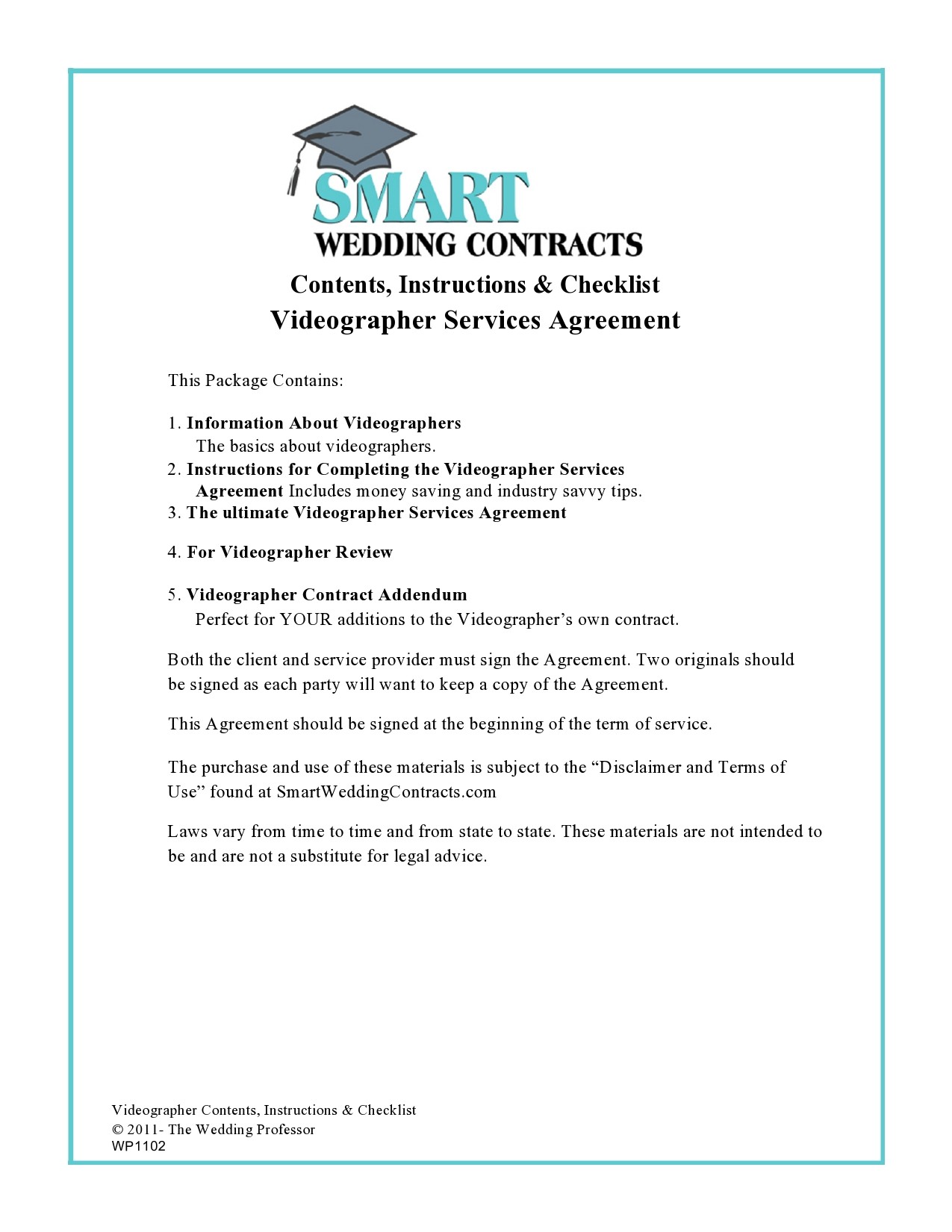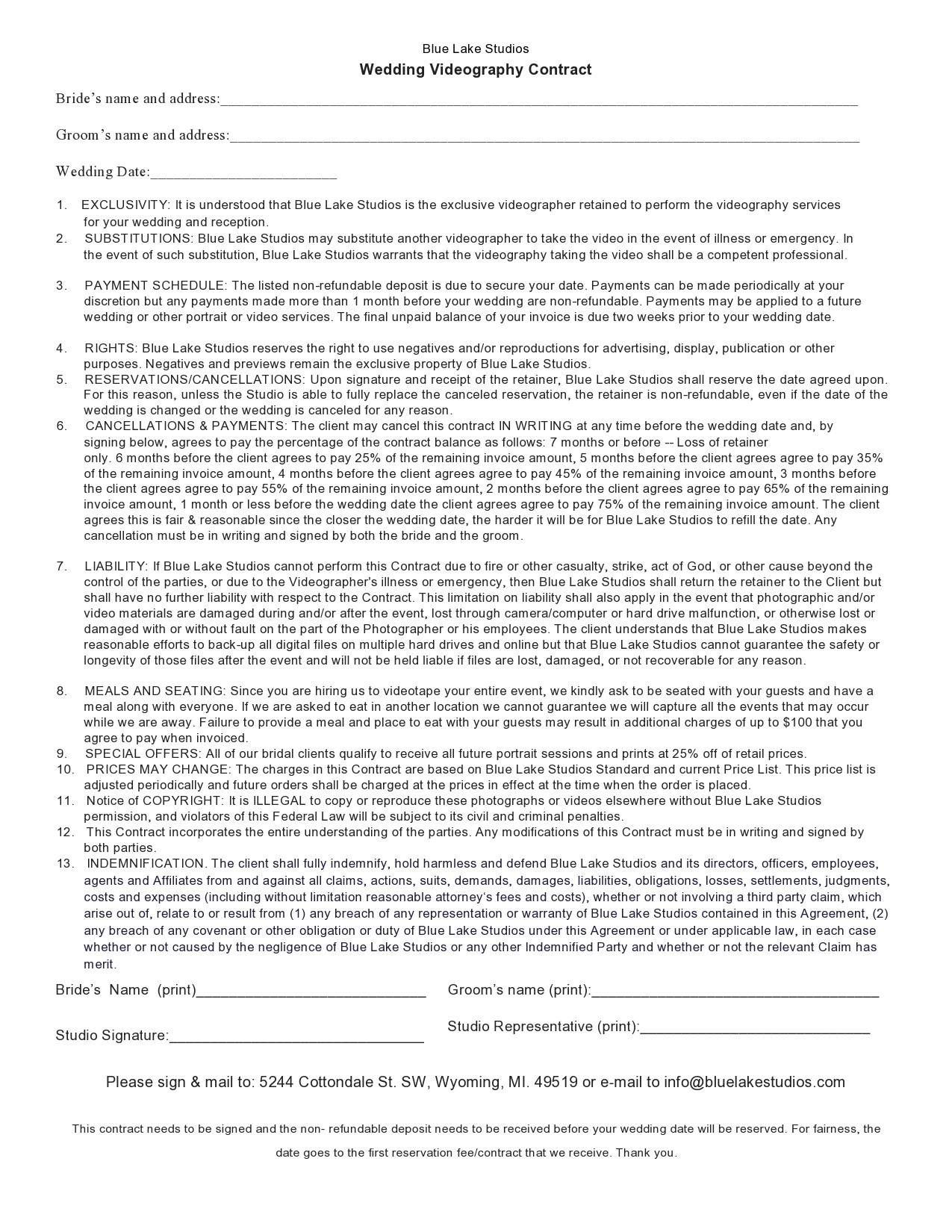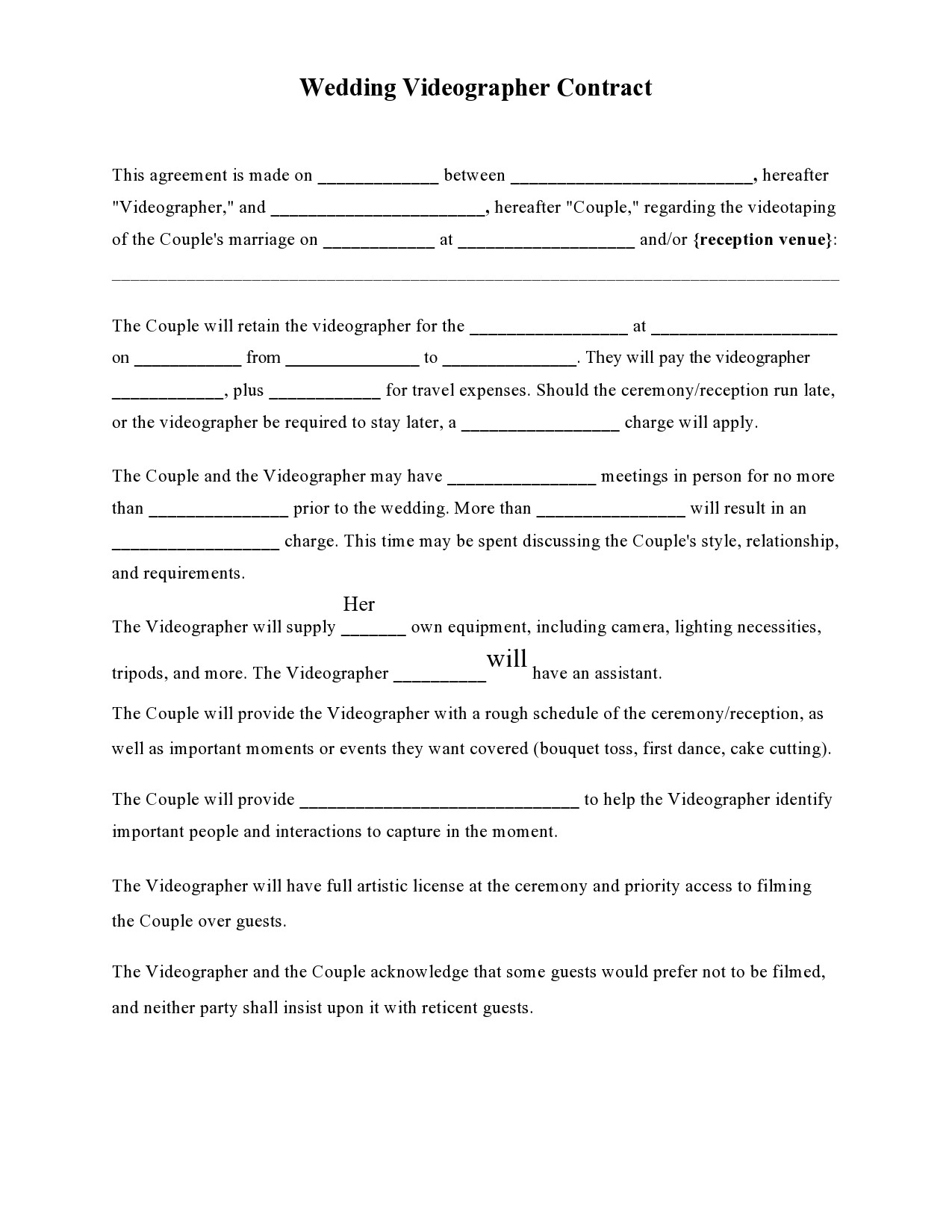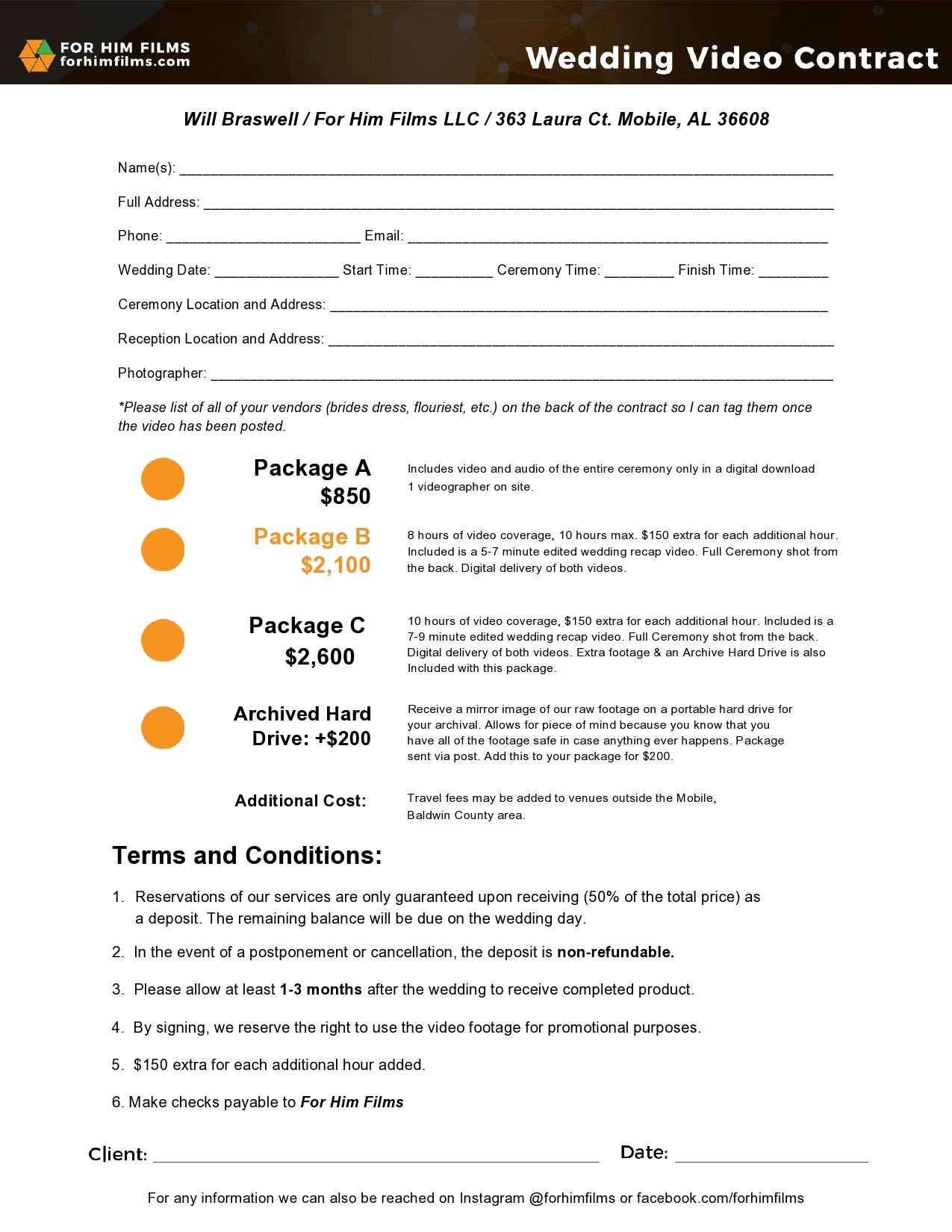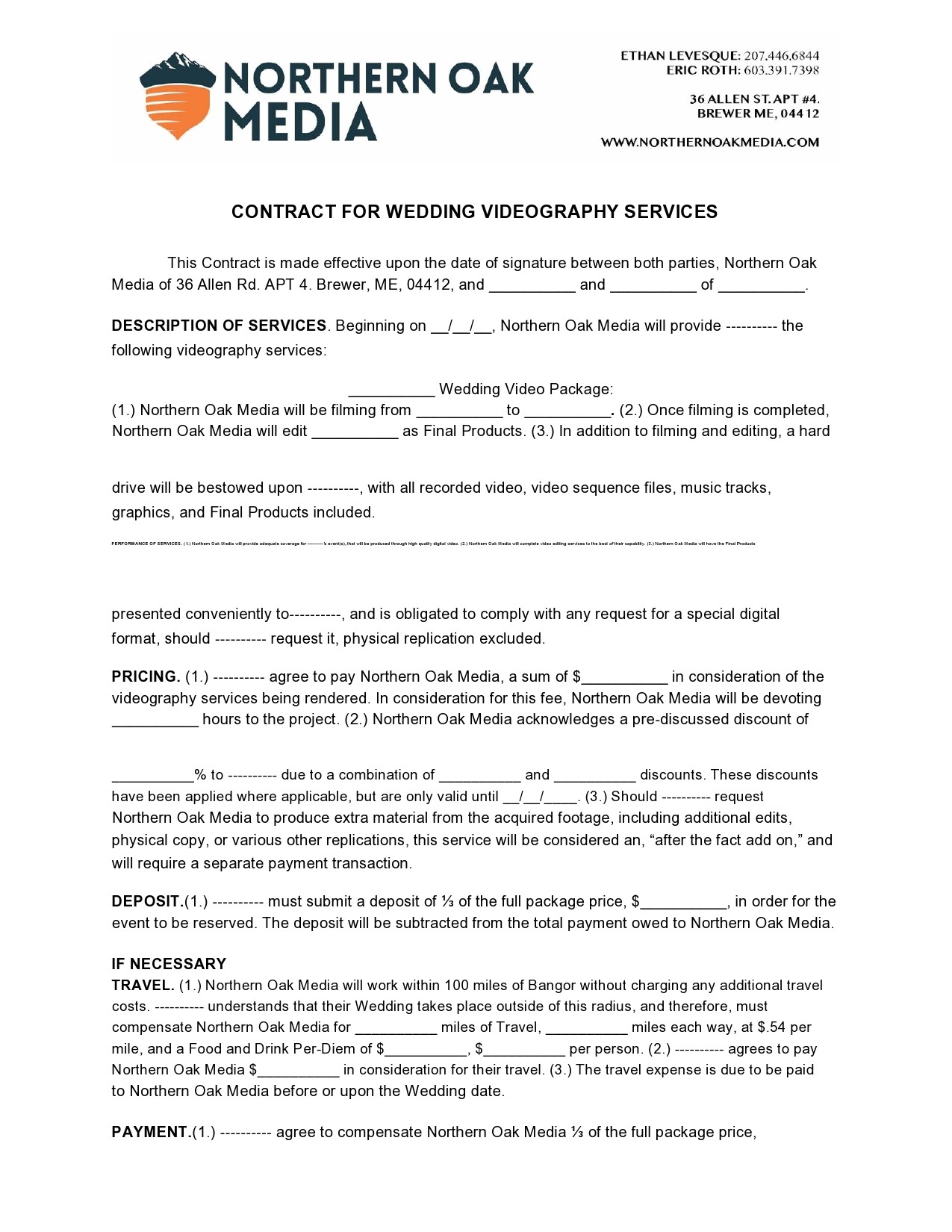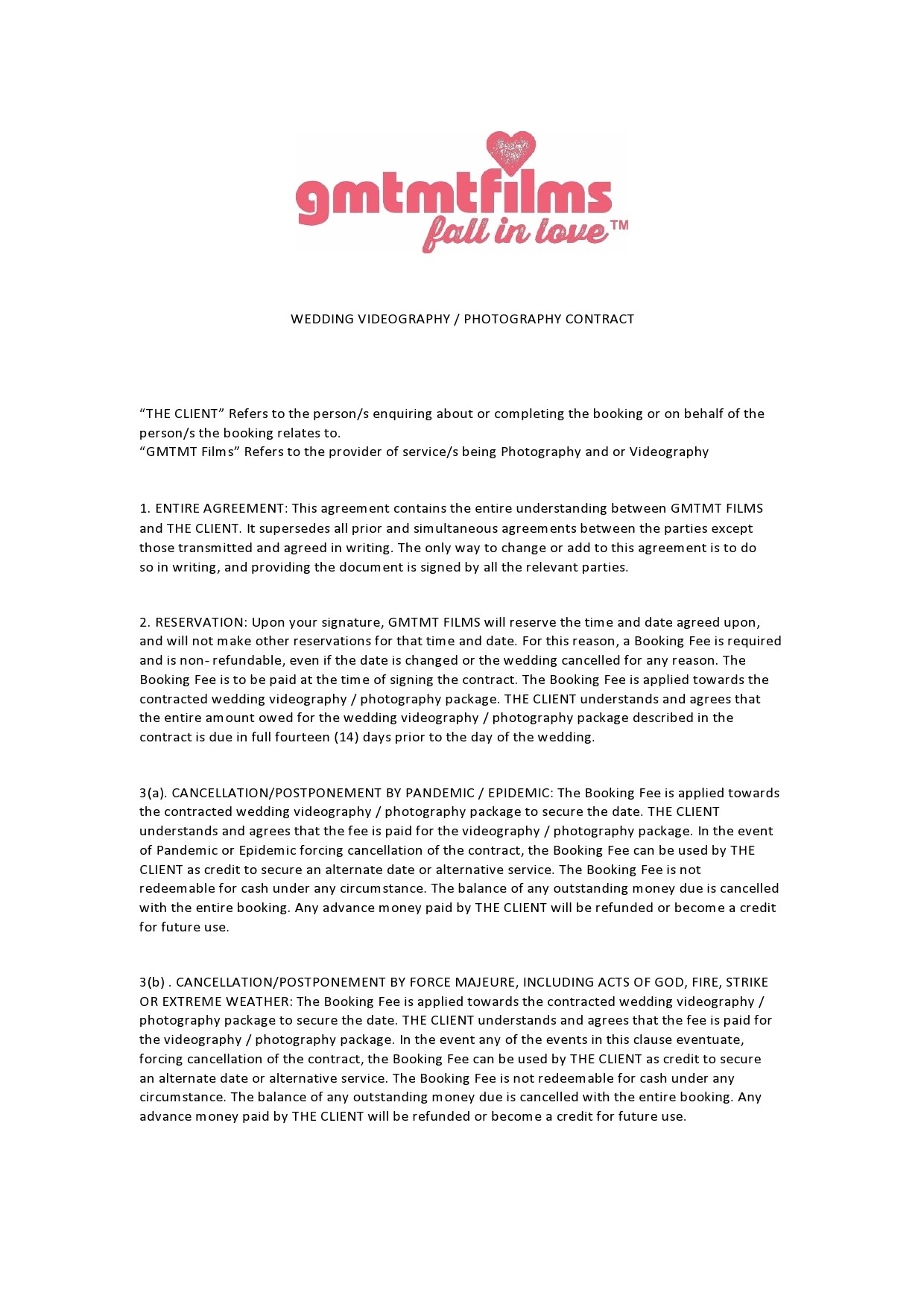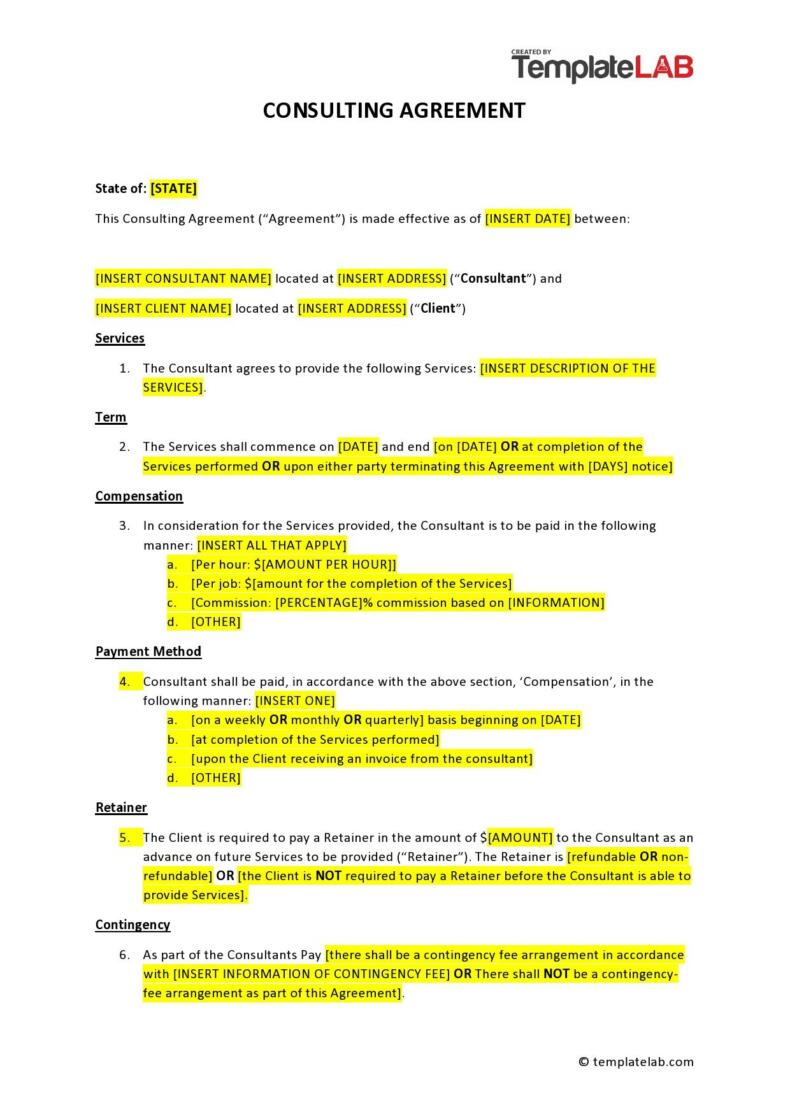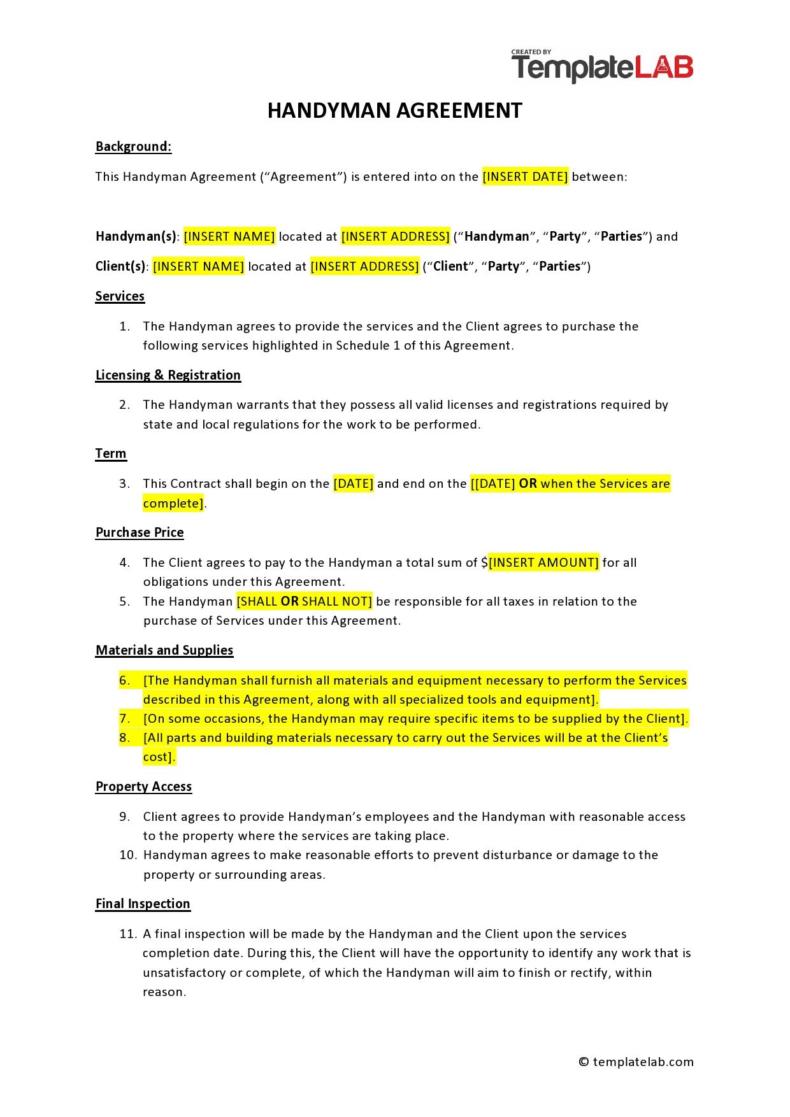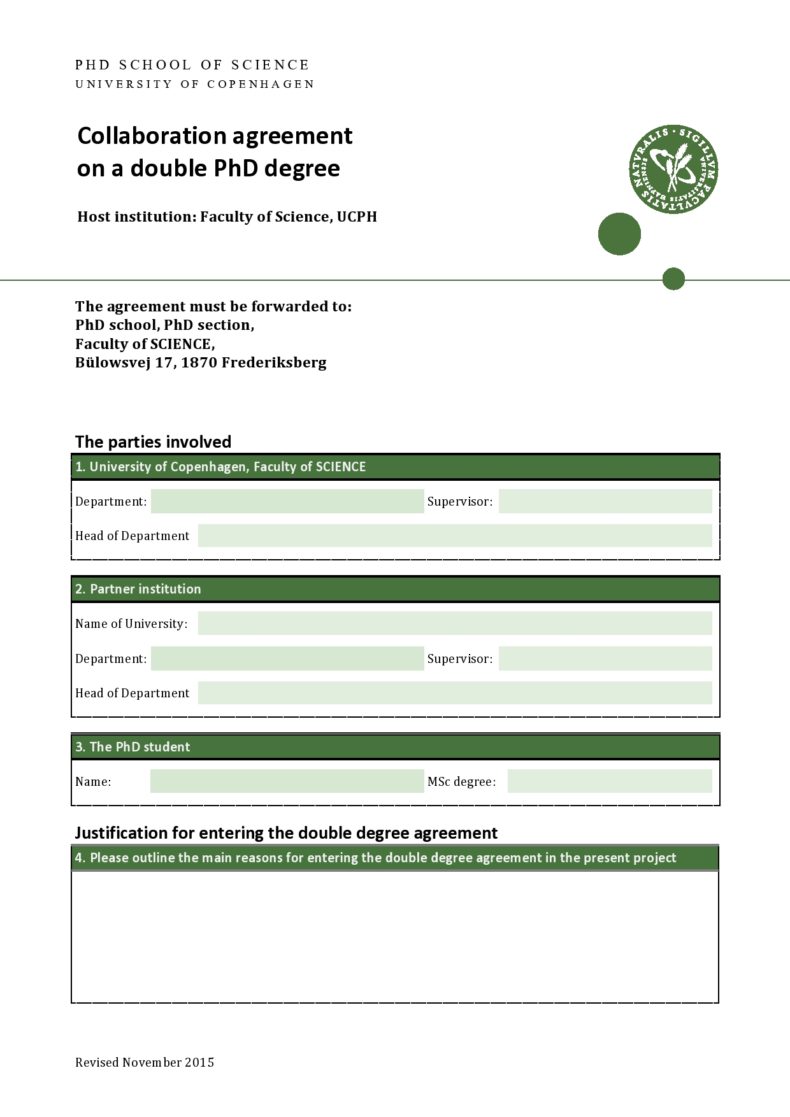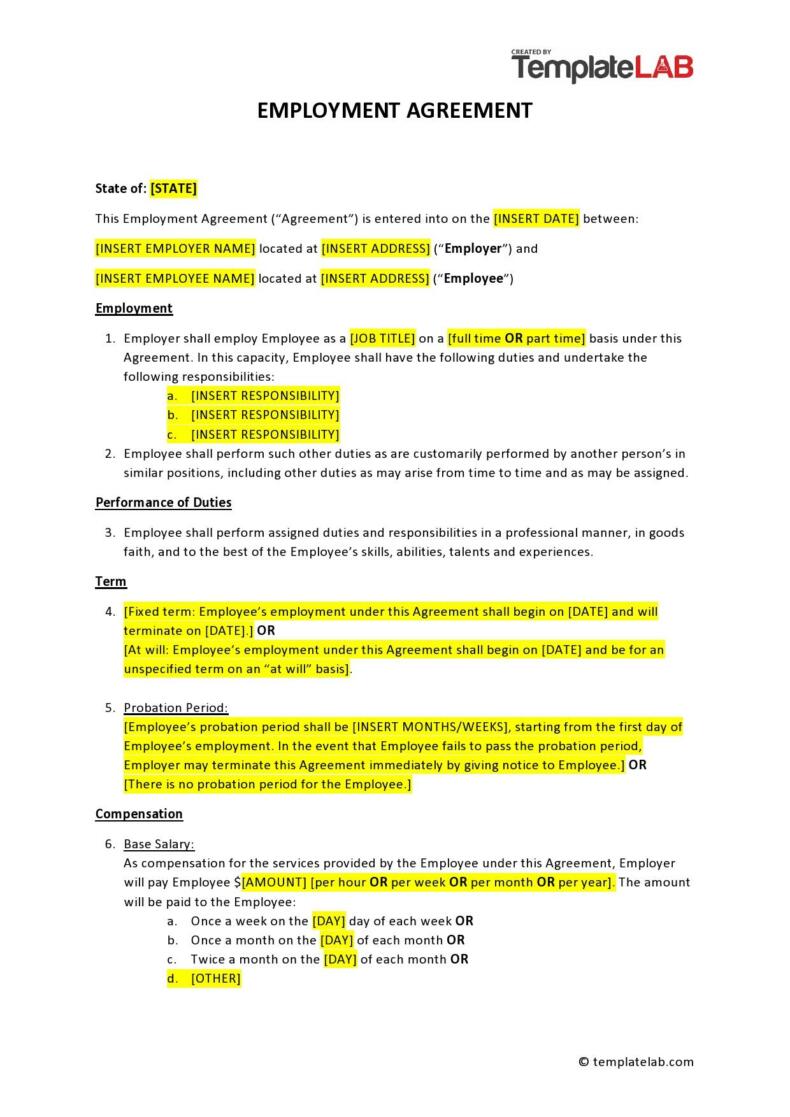Videographers are hired to offer different types of video shooting services to their customers. They may be called to shoot videos for brand documentaries, events, products, films, etc. What is more important is to have a signed agreement between the client and the videographer. A videography services agreement is the document that binds the two parties. The videographer agrees to provide services according to the client’s needs. On the other hand, the client agrees to be bound by the conditions in the document.
Table of Contents
- 1 Videography Contracts
- 2 What is a photography contract?
- 3 Videography Contract Templates
- 4 Why is a video production contract important?
- 5 Video Production Contracts
- 6 What should be included in a videography contract?
- 6.1 Contact information for both parties
- 6.2 Timelines
- 6.3 Services details
- 6.4 Sample timelines
- 6.5 The cost and breakdown of payments
- 6.6 Cancellation policy
- 6.7 Contract termination timelines
- 6.8 Video rights
- 6.9 Re-editing
- 6.10 What to do if natural issues hinder the video shooting?
- 6.11 Allowance for arbitration
- 7 Wedding Video Contracts
- 8 How to write a video production contract?
Videography Contracts
What is a photography contract?
When a videographer is hired by a client to shoot a video for them, the two sign an agreement to help protect their interests. A video production contract is a legal document that details what is expected from each party.
The document details the scope of work, payment agreements, and the work timeline. Both parties sign the agreement to show they have mutually agreed to enter into a contract. If one party fails to honor their part, the agreement can be used in court.
Videography Contract Templates
Why is a video production contract important?
A video contract agreement protects both the videographer and the client. It gives details on the obligations each party is supposed to fulfill. Sometimes the conditions on the ground may suddenly change.
The video production contract gives details on what should be done in such moments. For example, the weather conditions may change and affect outdoor shooting. The video shooting might be taking place in the wild, and at one point, the safety of the two parties might be compromised.
There might be disagreements later concerning payments. The two parties will refer to the agreement in the video production contract to help solve the issues. No matter how small or big the event is, the videography contract is always necessary. It will provide both parties with the following benefits.
- It is a legally binding document: The videography services agreement can be used to prove there was an agreement between the two parties if legal issues arise later.
- It ensures quality: With a signed agreement, the services provider will ensure they are keen on video quality by using the right tools.
- No rules are left out: The document gives details of what each party is expecting. It acts as the guide to each shooting phase or scene to make sure nothing is left out.
- The videographers get their pay in time: The client will be bound by the agreement to make payment by the agreed date. If they delay, it may attract penalties or legal issues.
Video Production Contracts
What should be included in a videography contract?
A videography contract template should be detailed to ensure no important information is left out. This helps to avoid challenges that may arise later as the work goes on or when claiming payment. The videography contract template should capture the following details.
Contact information for both parties
Contact information is a must in the videography contract template. It shows who are the parties involved and how they can be contacted. The contact information must include the following details.
- Names: It must have the names of the video services provider and their client.
- Telephone number: It must have the telephone contacts of both parties.
- Email address: It is necessary to include the email addresses of both
- Physical address: The physical address for both parties is necessary too. The videographer may benefit more due to future referrals by the client if they provide quality videography services to them.
Timelines
Timelines in a videography contract template include several things. It is important to be very specific on each. It includes the following details.
- Date:This is the date when the video shooting is expected to be done
- Time:This is the time when the shooting is expected to start. Sometimes the videographer might have more than one event to shoot that day. The time shows when the shooting is supposed to start so that they arrive earlier.
- Duration:Duration means the number of hours or days the shooting is expected to take. If the shooting was supposed to take four hours but ended up taking 6 hours, there should be agreement on how the videographer will be compensated for the extra time. Some video shooting, such as films or documentaries, takes several days or even months. The duration is very critical.
Services details
This is a description of services that the client is expecting from the videographer. For example, the videography contract template should detail how the shooting will be done.
- Will the shooting be done in one stationary location or multiple places within the venue?
- What type of video quality is expected?
- Is there a special request for specific types of video cameras?
- Is there a specific dressing code?
- What will the scene be like?
- Who will do the editing?
- What effects should be included in the editing
- How long will it take to deliver the edited copy?
- How will the delivery be done (in a DVD, flash disk, online, memory card, etc.)
- Is the client expecting a specific video format?
Sample timelines
The videography services agreement should state whether the client will expect a sample before the final copy is delivered. The expected time for delivering the sample should be stated in the agreement.
The cost and breakdown of payments
The videography services agreement should show the price the two parties have agreed upon. There must be details about how the payment will be made. The videographer might ask for a deposit before the work commences. If it’s taking several weeks, they might ask for a second deposit after some time.
There might be overtime fees if the shooting exceeds the expected time. There might also be penalties for late payments. These details are very important in case challenges arise later. Sometimes the videographer may attach a payment schedule to the videography services agreement.
Cancellation policy
Issues may arise before the shooting date, during shooting, or after. Some of the issues might force the parties to cancel the contract. If such an issue happens, the videography services agreement should give details about how it will be handled.
Sometimes it might be too late to cancel a contract because there would be no time to hire another videographer. The agreement should capture conditions under which the contract cannot be canceled.
Contract termination timelines
Every contract has a beginning and an end. The video production contract should indicate when the contract will terminate. It might be after the client receives the final copy of the video or after the videographer receives their final payment.
Video rights
In most cases, the video rights go to the client immediately after they receive the edited copy. In some cases, both parties retain rights depending on the agreement made. The video production contract should state who will retain the rights. Sometimes they might sign a video rights form.
Re-editing
Sometimes the client may want more information added or removed from the video after the videographer delivers it to them. The video production contract should capture details that explain how it should be done and the number of times allowed.
What to do if natural issues hinder the video shooting?
Natural occurrences could hinder the event from happening. If the shooting is happening outdoors, there could be a lot of rainfall, storms, or too much snow. An earthquake may occur the very event day or any other natural phenomenon. These are important details that should be captured in the video production contract. It should detail if both parties are protected from such occurrences.
Allowance for arbitration
Disagreements might arise concerning video quality, previously agreed venue or payment. Such disagreements might warrant the start of legal issues. The video production contract should detail if, in such cases, arbitration will be allowed before any party proceeds to court.
Wedding Video Contracts
How to write a video production contract?
The writing of a video production contract should involve both the client and the videographer. This ensures there will be no issues of disagreements later. When each party signs the agreement, it means they have understood the details therein and agree to be bound by it. Follow these steps to write a video production contract.
Engage in one-on-one talk
The very important thing before writing the agreement is to agree on what to write. The client must first understand what the videographer can provide and its limits. The videographer also must understand in detail what the client expects and their limits.
The client should engage the videographer to know what skills they have and the equipment. This will help the client to know if the videographer will meet their requirements. At this point, the two parties may agree to proceed to the next step or part.
Write the agreement
After agreeing to continue with the business relationship, the two parties must sit and write what they have agreed. They need to download the videography contract template and put everything into writing.
The details in the videography contract template should spell out the obligations of each party. All the components of a video agreement contract should be captured at this point.
Keep the agreement simple
You want to search for videography contract template examples to help you design the best agreement. Nevertheless, do not include too many details that will make the agreement difficult to understand. A lot of details can complicate everything. Instead, keep the agreement simple. Try to use short sentences and numbered headings for ease of understanding.
Agree on the services to expect
The complete video will be a series of stories compiled to make a complete video. The process of shooting the stories may require different background settings or styles. Agree on what equipment must be provided and the length of each story.
Agree on contract termination terms
Unfortunate things might happen that force any party to terminate the contract. For example, the parties might have signed a wedding video contract for a wedding event. Even after the agreement has been made, issues might arise, causing the wedding to be canceled or postponed.
In such a case, the client will have no option but to cancel the wedding video contract. The two should agree in advance on what will happen if the contract is terminated prematurely. There should be conditions or procedures to follow when canceling the wedding video contract.
Agree on the payment obligations
The videographer is in business and must protect his right to receive payment. Before writing the cost and conditions for payment, agree with the client first. Give them your cost and let the client agree to it or negotiate.
After agreeing on the pricing, agree on how the payment will be made. The videographer might want a lump sum payment immediately after delivery of the edited copy. They might want a deposit before work commences. These are details that must be agreed upon by the two parties and put into writing in the videography contract template.
Agree on ownership rights
Unless otherwise agreed, all ownership rights transfer to the client once they receive the edited copy of the video. However, this must be put into writing. The rights should not just cover the final copy of the video. It should cover the clips, the entire raw copy, the video negative and positive. These should be captured in detail in the agreement.
Confidential information
Confidentiality is a very important part of video production. Certain issues must remain confidential before, during, and after the contract comes to an end. An example is the actors involved in the storyline, the scene/s of shooting, and the storylines that remain confidential.
If it’s a wedding video contract, some couples may not like their wedding venue revealed to a third party. They may want the wedding ceremony to remain secret and known to a few individuals only. This could be due to various security reasons.
The videographer should agree not to reveal the venue to anyone, but the details of the agreement must be captured in the wedding video contract. The confidentiality agreement may also cover the security arrangements of the videographer and their client. It’s easy to use a videography contract template because it’s predesigned with most of the details captured.

